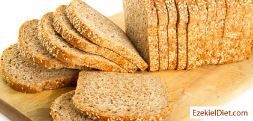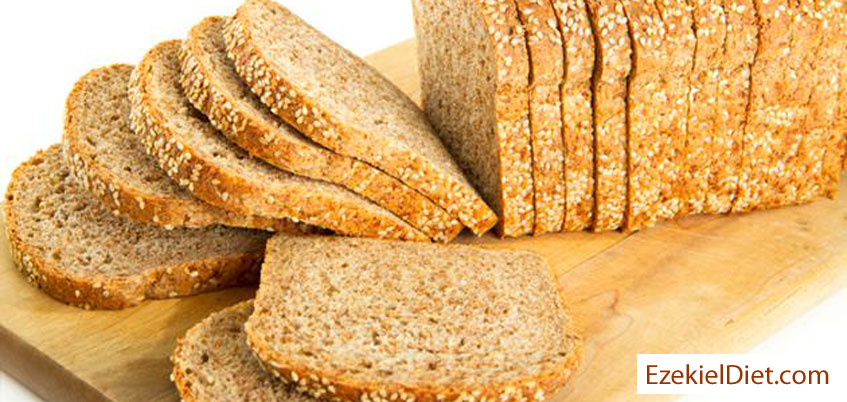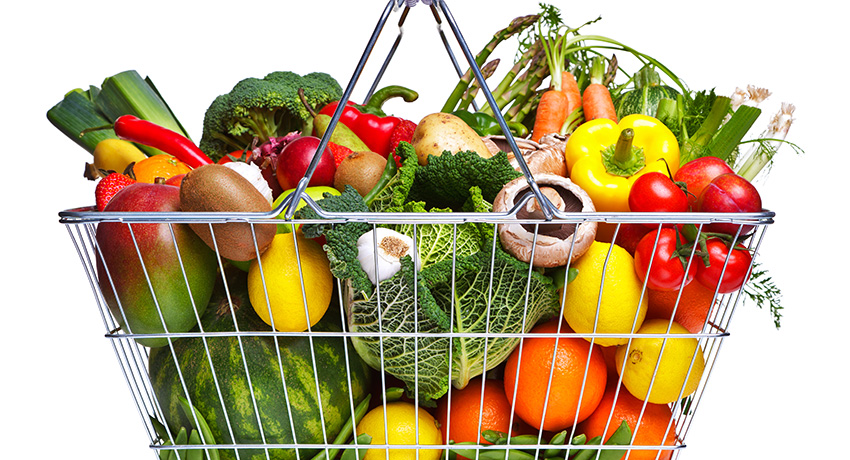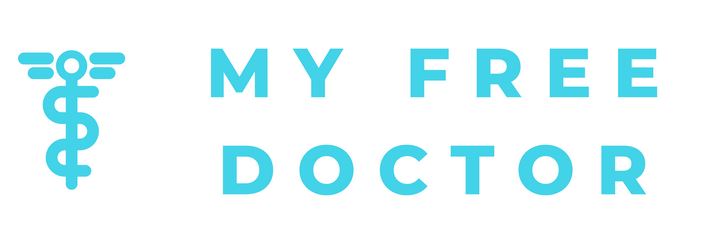Researchers find that ‘quality’ diets high in fruits and vegetables, low in sodium are good for kidneys
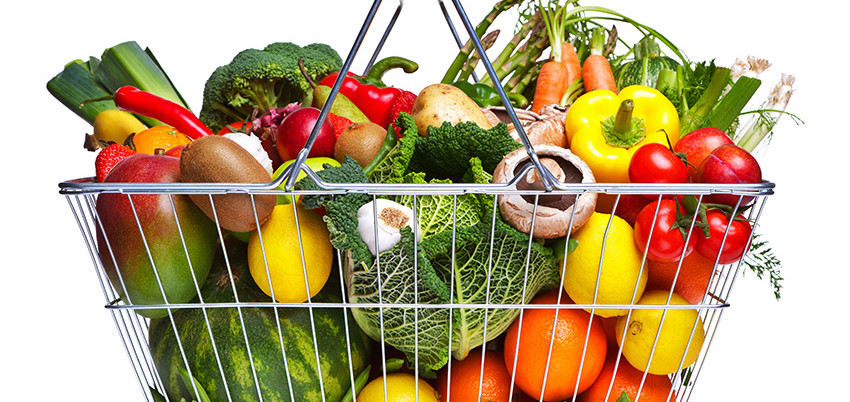
 by
EzekielDiet.com
by
EzekielDiet.comPosted on May 20, 2015
Wednesday, May 20, 2015 by: Raw Michelle as seen at NaturalNews.com
Tags: kidney health, plant-based diet, low sodium
(NaturalNews) Many health-minded people often question whether or not a medication prescribed to treat their condition will ultimately be helpful; it’s not uncommon for many to wonder if the drugs will do more harm to their body than good. In many instances, people opt to avoid conventional medications and treatments altogether and, instead, alter aspects of their lifestyle to manage or reverse their disease. However, doing so often results in raised eyebrows from conventional medical professionals whose loyalty typically leans towards prescribing drugs rather than exploring complementary and alternative medicine (CAM), which includes diet-based therapies.
That’s why the latest studies, presented in Philadelphia, Pennsylvania, during the American Society of Nephrology’s (ASN) Kidney Week, is likely to be music to many people’s ears. Quite simply, researchers found that an improved diet may help protect the kidneys, lessening the complications and frustrations that many with chronic kidney disease (CKD) face.
In fact, Andrew Smyth, MD, of the National University of Ireland, Galway, has explained that the entire reason behind the research in the first place was to explore whether or not changes in the diet could offer an affordable, easy intervention that could help those with CKD, demonstrating that interest in exploring the diet, and not just certain medications, may be gaining in popularity.(1)
Nearly 545,000 participants’ responses about diet quality and potassium and sodium intake were reviewed for the research.
A closer look at sodium and high-quality diets to help kidney health
Smyth’s team’s findings were published in an ASN report titled “Diet and Major Renal Outcomes: The NIH-AARP Diet and Health Study.” It states the following as its reason for delving into the role of diet and kidney health:
Chronic kidney disease (CKD) affects 14% of the US population and >400,000 people require dialysis. These patients are at increased risk of morbidity and mortality. Diet modification may be a low-cost, simple intervention that could reduce the burden of CKD. To evaluate the association between diet quality, sodium and potassium intake and major renal outcomes (death from renal cause or dialysis).(2)
Indeed, “higher-quality diets,” such as ones that included high amounts of vegetables, fruits and unsaturated fats, were linked to a 16 to 23 percent reduced risk of requiring dialysis and, more impressively, dying from kidney problems.(1)
Smyth’s team also found that high sodium intake (average of 4.7 g/day) was linked with an increased risk of needing dialysis or dying from kidney problems, but no significant benefit was seen for low sodium intake (average 2.0 g/day) compared with moderate intake. In contrast, high potassium intake was associated with a reduced future risk.(1)
“Our findings extend the known benefits of healthy eating and show that the consumption of a healthy diet may protect from future major renal endpoints,” said Dr. Smyth. “As dietary modification is a low-cost, simple intervention, it offers the potential to significantly reduce the burden from chronic kidney disease, while also protecting from cardiovascular disease.”(1)
Sodium reduction an important factor in keeping kidney dysfunction at bay
Sodium’s role in helping kidney health was also examined in another study led by Meg Jardine, MBBS, PhD, from the George Institute for International Health, Australia. Like Smyth’s, it too was also presented during Kidney Week 2014. By studying 120 rural villages in China where residents received either no intervention or an 18-month sodium-reduction program, her team determined that those who consumed reduced levels of sodium were 33 percent less likely to have albuminuria, which is protein in the urine that typically indicates kidney dysfunction.(1)
They also learned that high sodium intake was associated with an increased likelihood of a person needing dialysis or dying from kidney problems, while high potassium intake was found to reduce these potential problems.(1)
Her team’s findings, also published in an ASN report, was titled “A Sustained Dietary Sodium Reduction Program Reduces Albuminuria: A Large Cluster Randomised Trial.” It ultimately reinforces the importance that should be placed on reducing sodium in the diets of those with kidney disease, stating:
Albuminuria reduction through a dietary intervention could potentially be achieved population-wide at low cost. Discovering whether clinical benefits will ensue from dietary sodium reduction should therefore be a global research priority.(3)
Sources:
(2) http://www.abstracts2view.com
(3) http://www.abstracts2view.com
About the author:
Raw Michelle is a natural health blogger and researcher, sharing her passions with others, using the Internet as her medium. She discusses topics in a straight forward way in hopes to help people from all walks of life achieve optimal health and well-being. She has authored and published hundreds of articles on topics such as the raw food diet and green living in general. >>> Click here to see more by Michelle
Featured Videos
MORE ARTICLES
-
 Greg Reese: Artificial Intelligence and the Grim Future of a Divided Humanity
Greg Reese: Artificial Intelligence and the Grim Future of a Divided Humanity
Apr 24,2024 10:58 am
-
 From the Fringe: Caster Oil Treatment on Skin and Warts
From the Fringe: Caster Oil Treatment on Skin and Warts
Apr 24,2024 10:20 am
-
 Dr. Bryan Ardis: Detox – How to use Nicotine – Patches and Gum
Dr. Bryan Ardis: Detox – How to use Nicotine – Patches and Gum
Apr 24,2024 9:43 am
-
 Why You Don’t Want a WordPress Website & Subscription Software – Pay Once & Own It
Why You Don’t Want a WordPress Website & Subscription Software – Pay Once & Own It
Apr 23,2024 10:03 am
-
 Put a Missionary on the Payroll Spotlight: Bob & Beth Xavier – Things To Come Mission
Put a Missionary on the Payroll Spotlight: Bob & Beth Xavier – Things To Come Mission
Apr 21,2024 5:35 pm
-
 Remember Kathy Griffin’s Trump Head Incident? Check Out Her New Head Today…
Remember Kathy Griffin’s Trump Head Incident? Check Out Her New Head Today…
Apr 21,2024 3:42 pm
-
 Transhumanist Plan To Exterminate All Humans Now Public Information
Transhumanist Plan To Exterminate All Humans Now Public Information
Apr 21,2024 12:58 pm
-
 DR. BRYAN ARDIS | What you Don’t Know about Nicotine could KILL YOU! Exposing the Lie. Revealing the Benefits.
DR. BRYAN ARDIS | What you Don’t Know about Nicotine could KILL YOU! Exposing the Lie. Revealing the Benefits.
Apr 20,2024 6:01 pm
-
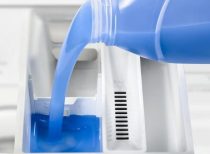 From the Fringe: The Laundry Detergent Conspiracy
From the Fringe: The Laundry Detergent Conspiracy
Apr 19,2024 9:45 pm
-
 WARNING: WHO Plans Global Coup of 194 UN Member Nations. International Wakeup Call
WARNING: WHO Plans Global Coup of 194 UN Member Nations. International Wakeup Call
Apr 19,2024 4:59 pm
-
 Tucker Carlson Interviews Pastor Doug Wilson In Defense of Christian Nationalism
Tucker Carlson Interviews Pastor Doug Wilson In Defense of Christian Nationalism
Apr 19,2024 4:23 pm
-
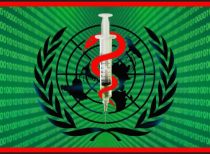 Humans Being Turned Into Batteries To Fuel Digital A.I. Prison
Humans Being Turned Into Batteries To Fuel Digital A.I. Prison
Apr 18,2024 4:35 pm
-
 X-Files predictive programming: Vaccines, Depopulation, EMP, Collapse, Invassion
X-Files predictive programming: Vaccines, Depopulation, EMP, Collapse, Invassion
Apr 18,2024 9:25 am
-
 Magnesium – The Weight Loss Cure – Dr. Carolyn Dean
Magnesium – The Weight Loss Cure – Dr. Carolyn Dean
Apr 18,2024 7:20 am
-
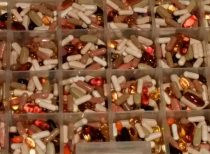 Supplements I Take Daily
Supplements I Take Daily
Apr 17,2024 10:43 am
-
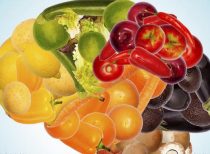 Food for the brain: Review examines the link between diet and mental health
Food for the brain: Review examines the link between diet and mental health
Apr 17,2024 8:49 am
-
 Update to Perricone MD’s Top 10 Supplements for Healthy, Beautiful Aging & Living
Update to Perricone MD’s Top 10 Supplements for Healthy, Beautiful Aging & Living
Apr 17,2024 8:44 am
-
 From the Fringe: The Most Important News – Michael Snyder Daily Feed
From the Fringe: The Most Important News – Michael Snyder Daily Feed
Apr 17,2024 8:32 am
-
 Dr. Paul Craig Roberts Institute for Political Economy – Daily Feed
Dr. Paul Craig Roberts Institute for Political Economy – Daily Feed
Apr 17,2024 8:15 am
-
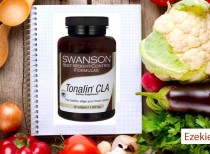 CLA: The experts speak on Conjugated Linoleic Acid and weight loss
CLA: The experts speak on Conjugated Linoleic Acid and weight loss
Apr 17,2024 7:12 am
-
 299 out of 300 Iranian Drones Shot Down? Really? Did you see them?
299 out of 300 Iranian Drones Shot Down? Really? Did you see them?
Apr 15,2024 9:18 am
-
 Put a Missionary on the Payroll Spotlight: Asuncion “Ciony” Buca – Things To Come Mission
Put a Missionary on the Payroll Spotlight: Asuncion “Ciony” Buca – Things To Come Mission
Apr 14,2024 6:06 pm
-
 Universal Commercial Code. A Systematic Enslavement. How to Free Yourself from Legal Tyranny
Universal Commercial Code. A Systematic Enslavement. How to Free Yourself from Legal Tyranny
Apr 14,2024 9:01 am
-
 From the Fringe: Not The Moon Causing the Solar Eclipse
From the Fringe: Not The Moon Causing the Solar Eclipse
Apr 11,2024 9:13 am
-
 Lies About The Sun and Moon – You Live in a Matrix of Lies; Question Everything.
Lies About The Sun and Moon – You Live in a Matrix of Lies; Question Everything.
Apr 10,2024 10:03 am
-
 From the Eclipse: Donald Trump Shares Bizarre Eclipse Campaign Alert
From the Eclipse: Donald Trump Shares Bizarre Eclipse Campaign Alert
Apr 09,2024 2:30 pm
-
 Put a Missionary on the Payroll Spotlight: Aaron & Noemi Arsino – Things To Come Mission
Put a Missionary on the Payroll Spotlight: Aaron & Noemi Arsino – Things To Come Mission
Apr 08,2024 12:52 pm
-
 Reese Report: A.I. Deciding Who To Kill For Israel
Reese Report: A.I. Deciding Who To Kill For Israel
Apr 05,2024 8:58 pm
-
 525 Hogs mRNA Vaccinated – 30% Dead or Near Death – Autopsy Found Live mRNA in the Meat
525 Hogs mRNA Vaccinated – 30% Dead or Near Death – Autopsy Found Live mRNA in the Meat
Apr 05,2024 5:18 pm
-
 From the Fringe: Summoning Evil Entities at CERN, Solar Eclipse & More
From the Fringe: Summoning Evil Entities at CERN, Solar Eclipse & More
Apr 04,2024 7:29 pm
-
 Reese Report: Major Events Surrounding the April 8th Solar Eclipse
Reese Report: Major Events Surrounding the April 8th Solar Eclipse
Apr 04,2024 3:15 pm
-
 This Is Why Many People Will Consider The Great American Eclipse Of 2024 On April 8th To Be A Big “Dud”
This Is Why Many People Will Consider The Great American Eclipse Of 2024 On April 8th To Be A Big “Dud”
Apr 03,2024 10:30 am
-
 Private Member Associations (PMA’s) and Non-Taxable Trusts– MARK ATTWOOD
Private Member Associations (PMA’s) and Non-Taxable Trusts– MARK ATTWOOD
Apr 03,2024 9:14 am
-
 What Happened The Last Time Two Eclipses Formed A Giant “X” Over The New Madrid Fault Zone?
What Happened The Last Time Two Eclipses Formed A Giant “X” Over The New Madrid Fault Zone?
Apr 02,2024 9:43 am
-
 From the Fringe: Nuclear Poppycock, Atomic Balderdash, Fear & Stagecraft
From the Fringe: Nuclear Poppycock, Atomic Balderdash, Fear & Stagecraft
Apr 01,2024 7:14 pm
-
 Bought, Purchased, Redeemed and Ransomed. Is the Shroud of Turin “The Receipt Of The Resurrection of Jesus”?
Bought, Purchased, Redeemed and Ransomed. Is the Shroud of Turin “The Receipt Of The Resurrection of Jesus”?
Mar 31,2024 10:33 am
-
 Movie: Risen (2016) – He Is Everywhere Scene – On YouTube & Prime
Movie: Risen (2016) – He Is Everywhere Scene – On YouTube & Prime
Mar 31,2024 9:40 am
-
 These Miraculous Events Prove the Perfect Unity of the Trinity
These Miraculous Events Prove the Perfect Unity of the Trinity
Mar 31,2024 8:31 am
-
 Two Hour Slow Cooker Apple Crisp for a Day
Two Hour Slow Cooker Apple Crisp for a Day
Mar 27,2024 5:52 pm
-
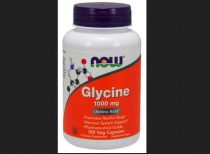 Why Glycine is Important in 2024 – Glutathione – Detox – Weight Loss – Liver Cleanse – Collagen – Visceral Fat – Hair Loss
Why Glycine is Important in 2024 – Glutathione – Detox – Weight Loss – Liver Cleanse – Collagen – Visceral Fat – Hair Loss
Mar 27,2024 4:08 pm
-
 Michael McKibben’s newest invention – MySQIF. YES. TRUE PRIVACY IS HERE
Michael McKibben’s newest invention – MySQIF. YES. TRUE PRIVACY IS HERE
Mar 27,2024 7:36 am
-
 Movie Nefarious – Demon Explains To Atheist Doctor Their Plan Against Humanity
Movie Nefarious – Demon Explains To Atheist Doctor Their Plan Against Humanity
Mar 26,2024 8:58 am
-
 Operation Gladio: The Unholy Alliance Between the Vatican, the CIA, and the Mafia (Full Audiobook)
Operation Gladio: The Unholy Alliance Between the Vatican, the CIA, and the Mafia (Full Audiobook)
Mar 25,2024 9:46 am
-
 Greg Reese: The British Royals and the Reptilians
Greg Reese: The British Royals and the Reptilians
Mar 22,2024 9:04 pm
-
 News With Views – Where Reality Shatters Illusion – Daily Feed
News With Views – Where Reality Shatters Illusion – Daily Feed
Mar 22,2024 8:15 am
-
 Diet Science Weekly Feed – Four Fats That Burn Body Fat
Diet Science Weekly Feed – Four Fats That Burn Body Fat
Mar 22,2024 7:57 am
-
 Skywatch TV Podcast Daily Feed
Skywatch TV Podcast Daily Feed
Mar 22,2024 6:58 am
-
 Outside Your Birdcage: MOST IMPORTANT Lessons Americans Were Never Taught in School
Outside Your Birdcage: MOST IMPORTANT Lessons Americans Were Never Taught in School
Mar 20,2024 10:55 am
-
 Silent Frequencies: Exposing the Covert World of Mind Control in Media – Veritas
Silent Frequencies: Exposing the Covert World of Mind Control in Media – Veritas
Mar 19,2024 8:03 am
-
 Outside the Birdcage: Parasitic Science and the Unproven Virus | Greg Reese
Outside the Birdcage: Parasitic Science and the Unproven Virus | Greg Reese
Mar 14,2024 10:27 am
-
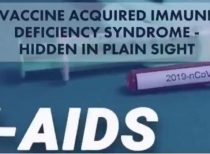 V.A.I.D.S. Vaccine Acquired Immune Deficiency Syndrome – The Multi Shot Process
V.A.I.D.S. Vaccine Acquired Immune Deficiency Syndrome – The Multi Shot Process
Mar 14,2024 9:31 am
-
 Rogan: Ray Kurzweil – AI in 2029 – The Singularity Is Nearer with Google Bucks
Rogan: Ray Kurzweil – AI in 2029 – The Singularity Is Nearer with Google Bucks
Mar 13,2024 7:36 am
-
 Chris Pinto – The Vatican’s Immigration War – Noise of Thunder Radio
Chris Pinto – The Vatican’s Immigration War – Noise of Thunder Radio
Mar 09,2024 12:11 pm
-
 Fighting for health freedom against government tyranny: XLEAR company founder Nathan Jones
Fighting for health freedom against government tyranny: XLEAR company founder Nathan Jones
Mar 08,2024 3:34 pm
-
 Florida Supreme Court To Seize CLOT SHOTS? High Court To Halt BIOWEAPON
Florida Supreme Court To Seize CLOT SHOTS? High Court To Halt BIOWEAPON
Mar 08,2024 9:05 am
-
 Top Oncologist Blows Whistle on mRNA Fallout: ‘We’ve Never Seen Cancers Behave Like This’
Top Oncologist Blows Whistle on mRNA Fallout: ‘We’ve Never Seen Cancers Behave Like This’
Mar 07,2024 2:49 pm
-
 Secret Ukrainian Agenda: Greater Israel Jewish State
Secret Ukrainian Agenda: Greater Israel Jewish State
Mar 05,2024 1:08 pm
-
 Mel Gibson: Global Elites Will Keep Dying To Make Way For The Antichrist
Mel Gibson: Global Elites Will Keep Dying To Make Way For The Antichrist
Mar 05,2024 11:00 am
-
 Curse of Canaan’s War on the White Race Programmed into Google’s Gemini AI
Curse of Canaan’s War on the White Race Programmed into Google’s Gemini AI
Mar 03,2024 2:30 pm
-
 Outside the Birdcage: Compilation of Vax Pushing Influencers Documenting Their Deaths For Clicks
Outside the Birdcage: Compilation of Vax Pushing Influencers Documenting Their Deaths For Clicks
Feb 27,2024 3:03 pm
-
 Launching the religious cult meme? Going after the “white christian nationalists”
Launching the religious cult meme? Going after the “white christian nationalists”
Feb 26,2024 12:26 pm
-
 The Kalergi Plan – The Curse of Canaan – The History of War Against the White Race
The Kalergi Plan – The Curse of Canaan – The History of War Against the White Race
Feb 23,2024 9:30 am
-
 WARNING: What is Neuralink Really For? The Privacy Guy 2-14-2024
WARNING: What is Neuralink Really For? The Privacy Guy 2-14-2024
Feb 19,2024 10:25 am
-
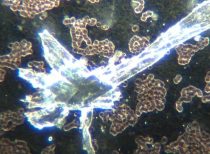 Greg Reese: Hydrogels in COVID Vaccine as Programmable Human Interface
Greg Reese: Hydrogels in COVID Vaccine as Programmable Human Interface
Feb 18,2024 11:55 am
-
 From the Fringe: The Miracles of Castor Oil
From the Fringe: The Miracles of Castor Oil
Feb 15,2024 8:42 am
-
 Rogan: Why Bret Weinstein is Concerned About the Migrant Crisis
Rogan: Why Bret Weinstein is Concerned About the Migrant Crisis
Feb 15,2024 12:28 am
-
 Tucker Carlson & Dr. Joseph Ladapo: Covid-19 Vaccines are the Antichrist of all Products
Tucker Carlson & Dr. Joseph Ladapo: Covid-19 Vaccines are the Antichrist of all Products
Feb 14,2024 11:20 pm
-
 The Weaponization of Illegal Immigrant Invasions Used To Destroy America From Within
The Weaponization of Illegal Immigrant Invasions Used To Destroy America From Within
Feb 13,2024 9:08 am
-
 Texe Marrs – Kabbalah is the Secret Foundation of Many False Religions
Texe Marrs – Kabbalah is the Secret Foundation of Many False Religions
Feb 09,2024 6:17 pm
-
 Reese Report: 30 Years of Russia Seeking Peace with the West
Reese Report: 30 Years of Russia Seeking Peace with the West
Feb 09,2024 4:33 pm
-
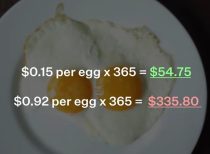 Are Expensive Eggs actually worth it?
Are Expensive Eggs actually worth it?
Feb 08,2024 9:49 am
-
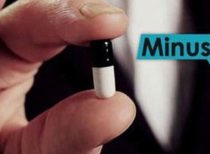 The World is a Much Brighter Place When You’re Not Too Bright For It – Satire – IQ Lowering Pill
The World is a Much Brighter Place When You’re Not Too Bright For It – Satire – IQ Lowering Pill
Feb 02,2024 1:07 pm
-
 From the Fringe: Ron Wyatt Discoveries – 2022 Documentary
From the Fringe: Ron Wyatt Discoveries – 2022 Documentary
Jan 31,2024 2:03 pm
-
 Greg Reese: Underground Tunnels and Hybrid Breeding Programs
Greg Reese: Underground Tunnels and Hybrid Breeding Programs
Jan 27,2024 6:36 pm
-
 Are Dr. Berg & Bobby Perrish right about meat & seafood at Costco?
Are Dr. Berg & Bobby Perrish right about meat & seafood at Costco?
Jan 24,2024 3:44 pm
-
 Outside the Birdcage: The Invasion Of Gog (Rothschild) And Magog (Khazar Jews)
Outside the Birdcage: The Invasion Of Gog (Rothschild) And Magog (Khazar Jews)
Jan 21,2024 12:17 pm
-
 Great Theologians of the 16th to 20th Centuries on Revelation and Historicism
Great Theologians of the 16th to 20th Centuries on Revelation and Historicism
Jan 14,2024 11:41 am
-
 Outside the Birdcage: All The World Is A Stage – It’s Time To Wake Up
Outside the Birdcage: All The World Is A Stage – It’s Time To Wake Up
Jan 10,2024 1:36 pm
-
 Outside the Birdcage: The Takeover and Secret Destiny of the USA
Outside the Birdcage: The Takeover and Secret Destiny of the USA
Jan 08,2024 2:29 pm
-
 UN SDG 13: Climate Action Will Destroy Your Life and Modern Industrial Civilization
UN SDG 13: Climate Action Will Destroy Your Life and Modern Industrial Civilization
Jan 06,2024 6:57 pm
-
 From the Fringe: Government is Preparing for Covid Vaxxed Zombies?
From the Fringe: Government is Preparing for Covid Vaxxed Zombies?
Jan 05,2024 7:57 pm
-
 Home & Appliance Repair Cost Out-of-Control in America – Business Idea
Home & Appliance Repair Cost Out-of-Control in America – Business Idea
Jan 05,2024 10:46 am
-
 SkywatchTV Latest News Daily Feed
SkywatchTV Latest News Daily Feed
Jan 02,2024 8:00 am
-
 From the Fringe: Eustace Mullins – Murder by Injection (Full Length)
From the Fringe: Eustace Mullins – Murder by Injection (Full Length)
Jan 02,2024 7:35 am
-
 Outside the Birdcage: Revelation Timeline Decoded Bible Study Guide – David Nikao Wilcoxson
Outside the Birdcage: Revelation Timeline Decoded Bible Study Guide – David Nikao Wilcoxson
Dec 31,2023 12:38 pm
-
 From the Fringe: Some Pixies show up in the woods? Hoax?
From the Fringe: Some Pixies show up in the woods? Hoax?
Dec 29,2023 3:02 pm
-
 From the Fringe: Why Some Drop Dead and Others Don’t – Payload Spill
From the Fringe: Why Some Drop Dead and Others Don’t – Payload Spill
Dec 26,2023 2:13 pm
-
 Poison in Your Food: Milk. It Does a Body Bad
Poison in Your Food: Milk. It Does a Body Bad
Dec 26,2023 1:25 pm
-
 From the Fringe: Broadcast MAC Address Detected in Vial of Blood
From the Fringe: Broadcast MAC Address Detected in Vial of Blood
Dec 26,2023 10:22 am
-
 Outside the Birdcage: Myths About the Birth of Christ (Luke 2:1-11)
Outside the Birdcage: Myths About the Birth of Christ (Luke 2:1-11)
Dec 24,2023 3:44 pm
-
 From the Fringe: Dangers within Preterism – Pt 1 & Pt 2
From the Fringe: Dangers within Preterism – Pt 1 & Pt 2
Dec 24,2023 7:43 am
-
 Outside the Birdcage: Christians Supporting Israel Are Wrong
Outside the Birdcage: Christians Supporting Israel Are Wrong
Dec 23,2023 9:40 am
-
 Compelling Historical Evidence for the Virgin Birth of Jesus Christ
Compelling Historical Evidence for the Virgin Birth of Jesus Christ
Dec 22,2023 8:00 am
-
 7 Easy Ways to Avoid Holiday Weight Gain – And Have a Great Time Doing It
7 Easy Ways to Avoid Holiday Weight Gain – And Have a Great Time Doing It
Dec 22,2023 7:31 am
-
 Caution: Holiday Health Hazards Ahead!
Caution: Holiday Health Hazards Ahead!
Dec 22,2023 7:00 am
-
 How December 25 Became Christmas
How December 25 Became Christmas
Dec 22,2023 7:00 am
-
 The Curse of Canaan: A Demonology of History, by Eustace Mullins. Audiobook Full
The Curse of Canaan: A Demonology of History, by Eustace Mullins. Audiobook Full
Dec 20,2023 10:10 am
-
 Inside the Birdcage: New Civil War Movie
Inside the Birdcage: New Civil War Movie
Dec 18,2023 12:35 pm
-
 Outside the Birdcage: Machiavelli – The Art of Power in The Modern World.
Outside the Birdcage: Machiavelli – The Art of Power in The Modern World.
Dec 18,2023 10:52 am
-
 First World Leader Facing Murder Charges For Pushing mRNA Vaccines on Public
First World Leader Facing Murder Charges For Pushing mRNA Vaccines on Public
Dec 18,2023 9:29 am
-
 From the Fringe & Outside the Birdcage: The Olive Tree & True Israel (Romans 11:16-18)
From the Fringe & Outside the Birdcage: The Olive Tree & True Israel (Romans 11:16-18)
Dec 15,2023 12:58 pm
-
 Outside the Birdcage – Tavis tock In stitute of Mind Con trol Exposed
Outside the Birdcage – Tavis tock In stitute of Mind Con trol Exposed
Dec 14,2023 2:38 pm
-
 Outside the Birdcage: The Secret Dark Origins of Christmas
Outside the Birdcage: The Secret Dark Origins of Christmas
Dec 11,2023 9:25 am
-
 Owew Shroyer RETURNS!
Owew Shroyer RETURNS!
Dec 10,2023 3:06 pm
-
 From the Fringe: No Jewish Race Today? – Modern Israel & Biblical Jews
From the Fringe: No Jewish Race Today? – Modern Israel & Biblical Jews
Dec 09,2023 8:35 am
-
 NETFLIX IS NOT WHAT YOU THINK IT IS!
NETFLIX IS NOT WHAT YOU THINK IT IS!
Dec 06,2023 2:24 pm
-
 Revelation part 2 Preterist Idealist View (Rev. 1:1-3)
Revelation part 2 Preterist Idealist View (Rev. 1:1-3)
Dec 03,2023 1:30 pm
-
 From the Fringe: Who Placed The Beatles on the World Stage and Why?
From the Fringe: Who Placed The Beatles on the World Stage and Why?
Dec 01,2023 12:42 pm
-
 The Perfect Human Diet – Exploring the obesity epidemic – FULL DOCUMENTARY
The Perfect Human Diet – Exploring the obesity epidemic – FULL DOCUMENTARY
Nov 30,2023 12:53 pm
-
 From the Fringe: The Secret Founding of America
From the Fringe: The Secret Founding of America
Nov 29,2023 1:39 pm
-
 From the Fringe: Christians and Israel Today? (Romans 9:6)
From the Fringe: Christians and Israel Today? (Romans 9:6)
Nov 29,2023 9:22 am
-
 From the Fringe: What’s Going On In Israel Has Nothing To Do With Bible Prophecy or Last Days
From the Fringe: What’s Going On In Israel Has Nothing To Do With Bible Prophecy or Last Days
Nov 28,2023 8:44 am
-
 From the Fringe: Revelation part 1 Preterist View (Rev 1:1)
From the Fringe: Revelation part 1 Preterist View (Rev 1:1)
Nov 26,2023 1:08 pm
-
 Rush Limbaugh 2010: Socialism Nearly Killed The Pilgrims
Rush Limbaugh 2010: Socialism Nearly Killed The Pilgrims
Nov 24,2023 3:51 pm
-
 Sweet potatoes can support digestive health and protect against cancer
Sweet potatoes can support digestive health and protect against cancer
Nov 24,2023 3:20 pm
-
 What Was It Really Like Aboard The Mayflower – Journey Into Unknown
What Was It Really Like Aboard The Mayflower – Journey Into Unknown
Nov 23,2023 12:42 pm
-
 The Origin of Thanksgiving Foods & Today’s Lab Coat GMO Bigger Better Tastier Versions
The Origin of Thanksgiving Foods & Today’s Lab Coat GMO Bigger Better Tastier Versions
Nov 21,2023 10:00 am
-
 You Become What You Think About – Controlling Your Mind in Troubled Times
You Become What You Think About – Controlling Your Mind in Troubled Times
Nov 20,2023 1:48 pm
-
 From the Fringe: A Message to Humanity… Game Over
From the Fringe: A Message to Humanity… Game Over
Nov 18,2023 10:18 am
-
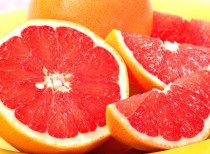 Grapefruit found to help reduce high blood pressure
Grapefruit found to help reduce high blood pressure
Nov 17,2023 7:46 am
-
 Stew Peters with Bonus after show chat – Flat Earth discussion
Stew Peters with Bonus after show chat – Flat Earth discussion
Nov 16,2023 9:10 am
-
 Dr. Lorraine Day passed away on November 10, 2023
Dr. Lorraine Day passed away on November 10, 2023
Nov 15,2023 6:53 pm
-
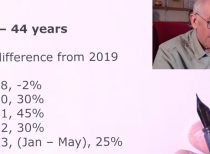 Dr. John Campbell: Excess deaths in 2023
Dr. John Campbell: Excess deaths in 2023
Nov 15,2023 5:32 pm
-
 The Deliberate Destruction of America – Dr. Lorraine Day
The Deliberate Destruction of America – Dr. Lorraine Day
Nov 15,2023 8:36 am
-
 From the Fringe: The Battle for Your Mind
From the Fringe: The Battle for Your Mind
Nov 14,2023 11:35 am
-
 Dr. Bryan Ardis | 3 Tips for Maintaining Gut Health – Flyover Clips
Dr. Bryan Ardis | 3 Tips for Maintaining Gut Health – Flyover Clips
Nov 12,2023 10:41 am
-
 Walter Veith – Sun Tzu, The Jesuits, America and The Art of War
Walter Veith – Sun Tzu, The Jesuits, America and The Art of War
Nov 05,2023 8:16 am
-
 Elaborate Hoax or Real Vanishing People Caught on Camera?
Elaborate Hoax or Real Vanishing People Caught on Camera?
Nov 03,2023 9:32 am
-
 01:34 Short Video: Ingested Pesticide Levels in Urine Before and After an Organic Diet
01:34 Short Video: Ingested Pesticide Levels in Urine Before and After an Organic Diet
Oct 31,2023 7:46 am
-
 FAT 101 – How the food industry is deceiving you – Peter Jennings ABC – Must See
FAT 101 – How the food industry is deceiving you – Peter Jennings ABC – Must See
Oct 30,2023 7:00 am
-
 The Subtle Boardroom Scene Message in the 1976 movie Network
The Subtle Boardroom Scene Message in the 1976 movie Network
Oct 28,2023 7:00 am
-
 The War on Wheat – the fifth estate
The War on Wheat – the fifth estate
Oct 27,2023 8:19 am
-
 How Smoothly Is Your Life Rolling Along? The Wheel of Life Can Change Your Life
How Smoothly Is Your Life Rolling Along? The Wheel of Life Can Change Your Life
Oct 26,2023 9:09 am
-
 Decoding the Book of Revelation without the Secret Rapture and 7 Year Tribulation – Professor Walter Veith
Decoding the Book of Revelation without the Secret Rapture and 7 Year Tribulation – Professor Walter Veith
Oct 24,2023 8:40 am
-
 Dispensationalism – Zionist Jesuit Futurism – Left Behind Theology
Dispensationalism – Zionist Jesuit Futurism – Left Behind Theology
Oct 23,2023 8:22 am
-
 Tom Horn Transhumanism Documentary: Inhuman: The Next and Final Phase of Man is Here
Tom Horn Transhumanism Documentary: Inhuman: The Next and Final Phase of Man is Here
Oct 21,2023 8:28 am
-
 EXPOSED !! 20 MILLION DEAD FROM THE JAB, 2.2 BILLION INJURIES – ANALYST ESTIMATES
EXPOSED !! 20 MILLION DEAD FROM THE JAB, 2.2 BILLION INJURIES – ANALYST ESTIMATES
Oct 20,2023 8:21 am
-
 Tom Horn, Christian media giant and CEO of Skywatch TV, dies after health struggle
Tom Horn, Christian media giant and CEO of Skywatch TV, dies after health struggle
Oct 14,2023 10:49 am
-
 Busted: Flight Aware Changes Turkish Airline TK31 Public Flight Mapping After Being FE Exposed
Busted: Flight Aware Changes Turkish Airline TK31 Public Flight Mapping After Being FE Exposed
Oct 05,2023 6:48 pm
-
 From the Fringe: Oxford Scientist John Lennox Warns of The Rise of A.I.
From the Fringe: Oxford Scientist John Lennox Warns of The Rise of A.I.
Oct 05,2023 6:22 am
-
 From MSM: Dr. Birx admits to lying about everything all of the time during COVID
From MSM: Dr. Birx admits to lying about everything all of the time during COVID
Sep 30,2023 11:12 am
-
 Classic Audio: Gary Allen “None Dare Call It Conspiracy”
Classic Audio: Gary Allen “None Dare Call It Conspiracy”
Sep 29,2023 10:18 am
-
 Proving God’s Flat Plane – Flight TK31 From Istanbul, Turkey to Atlanta, GA
Proving God’s Flat Plane – Flight TK31 From Istanbul, Turkey to Atlanta, GA
Sep 26,2023 3:58 pm
-
 84 of Chef Politte’s Fast Food Sauce Recipes You Can Make At Home Healthier
84 of Chef Politte’s Fast Food Sauce Recipes You Can Make At Home Healthier
Sep 24,2023 2:20 pm
-
 From the Fringe: 2023 ‘End of Mankind’ Prophecy of Moses
From the Fringe: 2023 ‘End of Mankind’ Prophecy of Moses
Sep 23,2023 2:35 pm
-
 Predictive Programming Pointing to September 23rd – This Year Perhaps?
Predictive Programming Pointing to September 23rd – This Year Perhaps?
Sep 19,2023 9:00 am
-
 160 Countries Have Signed Onto Reducing The World Population To 800 Million By 2030?
160 Countries Have Signed Onto Reducing The World Population To 800 Million By 2030?
Sep 12,2023 5:13 pm
-
 Is it True Desani Water by Coca Cola Does Not Freeze?
Is it True Desani Water by Coca Cola Does Not Freeze?
Sep 07,2023 10:29 am
-
 Dr. Bill Deagle Dead at 71 – Obituary
Dr. Bill Deagle Dead at 71 – Obituary
Sep 07,2023 9:00 am
-
 If the Distance to the Sun is 93 Million Miles, Explain Sun Beam Angles Like This
If the Distance to the Sun is 93 Million Miles, Explain Sun Beam Angles Like This
Sep 06,2023 9:27 am
-
 Doctors Took Blood Money Bribes To Get Patient Vaccinations up to 70%
Doctors Took Blood Money Bribes To Get Patient Vaccinations up to 70%
Sep 06,2023 8:08 am
-
 From the Fringe: US Military Helicopter Pilot / Engineer on Flat Earth
From the Fringe: US Military Helicopter Pilot / Engineer on Flat Earth
Aug 29,2023 5:29 pm
-
 Naturopathic doctor Wil Spencer: Reveals SOLUTIONS to remove vaccine nanocircuitry
Naturopathic doctor Wil Spencer: Reveals SOLUTIONS to remove vaccine nanocircuitry
Aug 26,2023 11:46 am
-
 From the Fringe: Dr. Robert Duncan AI V2K Technology and Directed Energy DEW Torture
From the Fringe: Dr. Robert Duncan AI V2K Technology and Directed Energy DEW Torture
Aug 25,2023 8:27 pm
-
 From the Fringe: Sacred Frequencies vs The Devil’s Interval That Makes Us Sick
From the Fringe: Sacred Frequencies vs The Devil’s Interval That Makes Us Sick
Aug 24,2023 7:34 pm
-
 God has His own Great Reset that Christians expect to start in September
God has His own Great Reset that Christians expect to start in September
Aug 23,2023 10:06 am
-
 From the Fringe: They Tried To Kill Bryan Ardis Using Poisoned Bottled Water
From the Fringe: They Tried To Kill Bryan Ardis Using Poisoned Bottled Water
Aug 22,2023 10:04 am
-
 Rep. Ron Johnson on Covid: “This was all pre-planned by an elite group of people…”
Rep. Ron Johnson on Covid: “This was all pre-planned by an elite group of people…”
Aug 17,2023 9:25 am
-
 Breaking Point – Episode 4 – VACCINES
Breaking Point – Episode 4 – VACCINES
Aug 10,2023 8:35 pm
-
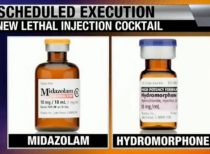 From the Fringe: When Your Early Demise Is Good For Business
From the Fringe: When Your Early Demise Is Good For Business
Aug 10,2023 10:13 am
-
 NANOTECH PLANDEMIC — HOPE & TIVON
NANOTECH PLANDEMIC — HOPE & TIVON
Aug 09,2023 9:29 am
-
 Greg Reese: IS ANTARCTICA THE KEY TO FLAT EARTH? [2019]
Greg Reese: IS ANTARCTICA THE KEY TO FLAT EARTH? [2019]
Aug 08,2023 9:54 am
-
 From the Fringe: Stolen History ‘The Mystery of the World’s Fairs’ Part 3
From the Fringe: Stolen History ‘The Mystery of the World’s Fairs’ Part 3
Jul 29,2023 10:55 am
-
 From the Fringe: Our Stolen History – The Destruction of The Old World
From the Fringe: Our Stolen History – The Destruction of The Old World
Jul 27,2023 7:16 pm
-
 From the Fringe: The Nuclear Hoax and the 3 Hour Propaganda Movie Oppenheimer
From the Fringe: The Nuclear Hoax and the 3 Hour Propaganda Movie Oppenheimer
Jul 24,2023 2:20 pm
-
 Skinny Pie Ideas: Cherry and Apple Pie Filling, No Sugar Added w Pecan Crust
Skinny Pie Ideas: Cherry and Apple Pie Filling, No Sugar Added w Pecan Crust
Jul 21,2023 3:29 pm
-
 From The Fringe: A Stranger’s Guide to God’s Earth – 21 Q&A proving a Plane
From The Fringe: A Stranger’s Guide to God’s Earth – 21 Q&A proving a Plane
Jul 19,2023 1:08 pm
-
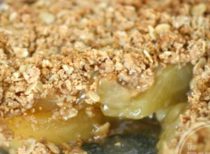 Delicious Apple & Peach Crisp Recipe Using Stevia and Lucky Leaf Apple Filling
Delicious Apple & Peach Crisp Recipe Using Stevia and Lucky Leaf Apple Filling
Jul 18,2023 3:16 pm
-
 BOOM! WE HAVE THEIR NANOTECH GENOCIDAL BEAST PLAN — HOPE & TIVON
BOOM! WE HAVE THEIR NANOTECH GENOCIDAL BEAST PLAN — HOPE & TIVON
Jul 12,2023 9:21 am
-
 One World; Two Species; Tartarian DNA
One World; Two Species; Tartarian DNA
Jul 05,2023 12:13 pm
-
 Forbidden Electric Technology
Forbidden Electric Technology
Jul 04,2023 12:06 pm
-
 Did the Early Church Believe in a Literal Thousand-Year Reign of Christ on Earth?
Did the Early Church Believe in a Literal Thousand-Year Reign of Christ on Earth?
Jun 30,2023 9:12 am
-
 How your WiFi Router Helps AI Read your Mind & Use Your Thoughts to pretend to be you.
How your WiFi Router Helps AI Read your Mind & Use Your Thoughts to pretend to be you.
Jun 27,2023 2:44 pm
-
 Midnight Ride Special: Tartaria and the 1000 Year Reign
Midnight Ride Special: Tartaria and the 1000 Year Reign
Jun 26,2023 9:26 pm
-
 THEY’RE FEEDING US TOXIC SLUDGE — Diane Kazer
THEY’RE FEEDING US TOXIC SLUDGE — Diane Kazer
Jun 25,2023 8:07 am
-
 ‘Black Mirror’ Season 6 Released June 15, Episode Descriptions
‘Black Mirror’ Season 6 Released June 15, Episode Descriptions
Jun 21,2023 8:54 am
-
 COVIDLAND 1) The Lockdown 2) The Mask 3) The Shot
COVIDLAND 1) The Lockdown 2) The Mask 3) The Shot
Jun 18,2023 1:55 pm
-
 Why is questioning the shape of the plane(t) a psyop? Veritas Radio
Why is questioning the shape of the plane(t) a psyop? Veritas Radio
Jun 13,2023 9:11 am
-
 ‘Final Days’ Worldwide Premiere
‘Final Days’ Worldwide Premiere
Jun 06,2023 2:36 pm
-
 The Edge AM & Tim Cohen: Antichrist And A Cup Of Tea
The Edge AM & Tim Cohen: Antichrist And A Cup Of Tea
Jun 04,2023 1:54 pm
-
 Plandemic 3 – The Great Awakening
Plandemic 3 – The Great Awakening
Jun 04,2023 10:38 am
-
 Guideline How To Buy Epic Cash
Guideline How To Buy Epic Cash
May 30,2023 12:08 pm
-
 Learn the Truth About Land Ownership in America
Learn the Truth About Land Ownership in America
May 27,2023 11:07 am
-
 David Martin Exposes Timeline of Biggest Democide in Recorded History
David Martin Exposes Timeline of Biggest Democide in Recorded History
May 27,2023 10:48 am
-
 Noise of Thunder Radio Weekly Feed
Noise of Thunder Radio Weekly Feed
May 25,2023 10:26 am
-
 The Cloward-Piven Strategy – Greg Reese
The Cloward-Piven Strategy – Greg Reese
May 20,2023 4:54 pm
-
 Updated 05-16-23 – How Much Food Can You Grow in a 10 X 10 Grow Tent or Extra Bedroom?
Updated 05-16-23 – How Much Food Can You Grow in a 10 X 10 Grow Tent or Extra Bedroom?
May 16,2023 9:00 am
-
 Iron Republic by Richard Jameson Morgan | Florida Magazine January 1902| As read by Nathan Stolpman
Iron Republic by Richard Jameson Morgan | Florida Magazine January 1902| As read by Nathan Stolpman
May 11,2023 8:49 pm
-
 SPACE WOO — DAVID WEISS & JERAN CAMPANELLA on SGT Report
SPACE WOO — DAVID WEISS & JERAN CAMPANELLA on SGT Report
May 10,2023 9:12 am
-
 Thermographic Imaging Shows Massive Blood Clots in the Asymptomatic Vaxxed
Thermographic Imaging Shows Massive Blood Clots in the Asymptomatic Vaxxed
May 06,2023 4:17 pm
-
 Beyond The Reset – A short film about our not too distant grim future
Beyond The Reset – A short film about our not too distant grim future
Apr 17,2023 6:47 pm
-
 Greg Reese: How The Banks Work And Why They Are Collapsing
Greg Reese: How The Banks Work And Why They Are Collapsing
Apr 08,2023 3:31 pm
-
 Greg Reese: Are American Farmers Injecting Livestock with mRNA Shots?
Greg Reese: Are American Farmers Injecting Livestock with mRNA Shots?
Apr 06,2023 12:45 pm
-
 Flat Earth….a true story…
Flat Earth….a true story…
Apr 02,2023 12:02 pm
-
 Documentary: The Shadow State. By The Epoch Times
Documentary: The Shadow State. By The Epoch Times
Mar 29,2023 9:28 am
-
 Tucker Carlson Today – Sudden Death Epidemic! – A Must See Video
Tucker Carlson Today – Sudden Death Epidemic! – A Must See Video
Feb 25,2023 8:52 pm
-
 IN MEMORIAM TO DR. MICHAEL HEISER
IN MEMORIAM TO DR. MICHAEL HEISER
Feb 22,2023 7:01 pm
-
 Egg Conspiracy: A Brand of Feed Stops Chickens From Laying Eggs?
Egg Conspiracy: A Brand of Feed Stops Chickens From Laying Eggs?
Feb 02,2023 8:40 am
-
 WEF Wants Ukraine as the Model for UN Agenda 2030 Great Reset Smart City
WEF Wants Ukraine as the Model for UN Agenda 2030 Great Reset Smart City
Jan 22,2023 3:24 pm
-
 MUST WATCH Dr Ardis and Mike Adams Break New Ground: Clots, Venom, MORE
MUST WATCH Dr Ardis and Mike Adams Break New Ground: Clots, Venom, MORE
Jan 17,2023 9:30 pm
-
 Russian Pianist Gamazda – When You Know All The Piano Lessons Paid Off
Russian Pianist Gamazda – When You Know All The Piano Lessons Paid Off
Jan 16,2023 1:35 pm
-
 Protect Yourself From Stolen Mailed Check Washers
Protect Yourself From Stolen Mailed Check Washers
Jan 14,2023 1:20 pm
-
 Medvedev Issues Cryptic Message about Restraining the Antichrist
Medvedev Issues Cryptic Message about Restraining the Antichrist
Jan 13,2023 12:11 pm
-
 Academic explains how future humans could become ‘part organic, part mechanic cyborgs’
Academic explains how future humans could become ‘part organic, part mechanic cyborgs’
Jan 08,2023 10:29 am
-
 Tom Friess Exposes The Global Vatican To Comatose Protestant Americans
Tom Friess Exposes The Global Vatican To Comatose Protestant Americans
Dec 27,2022 9:27 am
-
 Disturbing Details About Phone Tracking in 2022 – The Complete Report
Disturbing Details About Phone Tracking in 2022 – The Complete Report
Dec 07,2022 4:05 pm
-
 Inviting Generational Curses Into Your Life
Inviting Generational Curses Into Your Life
Dec 06,2022 9:58 am
-
 Never Before Seen Photos of Beyond The Ice Wall in Antarctica – Robert Falcon Scott 1912
Never Before Seen Photos of Beyond The Ice Wall in Antarctica – Robert Falcon Scott 1912
Dec 04,2022 10:45 am
-
 Dr. Ana Mihalcea: Nanotech in Injections & Quantum Physics, Detoxing
Dr. Ana Mihalcea: Nanotech in Injections & Quantum Physics, Detoxing
Nov 28,2022 4:27 pm
-
 World Premiere: Died Suddenly
World Premiere: Died Suddenly
Nov 22,2022 8:50 am
-
 Demons – documentary film with Dr. Michael S. Heiser
Demons – documentary film with Dr. Michael S. Heiser
Nov 17,2022 11:36 am
-
 Epic Economist: 20 Items That Are Impossible To Find At Grocery Stores Right Now
Epic Economist: 20 Items That Are Impossible To Find At Grocery Stores Right Now
Nov 14,2022 1:15 pm
-
 Dr. Lee Merritt & Karen Kingston – It’s All Parasites: Cancer, Vaccines, Remedies
Dr. Lee Merritt & Karen Kingston – It’s All Parasites: Cancer, Vaccines, Remedies
Nov 10,2022 12:27 pm
-
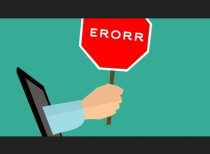 Ezekiel Diet Blog Site Under Construction
Ezekiel Diet Blog Site Under Construction
Nov 05,2022 1:22 pm
-
 Commentary on the Key Points and Secrets of The Ezekiel Diet
Commentary on the Key Points and Secrets of The Ezekiel Diet
Nov 05,2022 10:15 am
-
 Ben Armstrong: AMERICA in the Book of Revelation and End Times destruction
Ben Armstrong: AMERICA in the Book of Revelation and End Times destruction
Oct 13,2022 11:04 am
-
 Financial cycles analyst lays out KEY TIMING WINDOW for catastrophic market crash
Financial cycles analyst lays out KEY TIMING WINDOW for catastrophic market crash
Oct 04,2022 7:34 pm
-
 History’s Coming Climax & the Millennium by Professor Walter Veith
History’s Coming Climax & the Millennium by Professor Walter Veith
Sep 29,2022 8:33 am
-
 Susan Smith Jones, PhD: Weight Loss Made Easy on The Power Hour
Susan Smith Jones, PhD: Weight Loss Made Easy on The Power Hour
Sep 06,2022 8:43 am
-
 My Cold or Flu Protocol
My Cold or Flu Protocol
Jul 18,2022 12:07 pm
-
 The Third Temple – Professor Walter Veith
The Third Temple – Professor Walter Veith
Jul 03,2022 12:06 pm
-
 Bonhoeffer‘s Theory of Stupidity
Bonhoeffer‘s Theory of Stupidity
Jun 06,2022 3:38 pm
-
 Review: Public Rec’s All Day Every Day $108 Pants – Style & Comfort Like No Other
Review: Public Rec’s All Day Every Day $108 Pants – Style & Comfort Like No Other
Jun 02,2022 5:40 pm
-
 Living in the Opening Scenes of a Surreal 3D Disaster Movie
Living in the Opening Scenes of a Surreal 3D Disaster Movie
May 04,2022 7:00 am
-
 2022 to 2030 Trends Forecast – Ezekiel Diet Files
2022 to 2030 Trends Forecast – Ezekiel Diet Files
May 03,2022 1:04 pm
-
 Walmart Is Selling Ezekiel Bread from Food for Life
Walmart Is Selling Ezekiel Bread from Food for Life
Mar 22,2022 8:43 am
-
 Meal Testing a 12+ Year Old Bag of Vigo Black Beans & Rice Dinner
Meal Testing a 12+ Year Old Bag of Vigo Black Beans & Rice Dinner
Feb 03,2022 11:19 am
-
 Easy Creamy Mushroom Sauce | Chef-Jean Pierre
Easy Creamy Mushroom Sauce | Chef-Jean Pierre
Jan 13,2022 5:09 pm
-
 Emergency update: Biden’s promised “winter of severe illness and death” is coming true,
Emergency update: Biden’s promised “winter of severe illness and death” is coming true,
Dec 20,2021 9:11 am
-
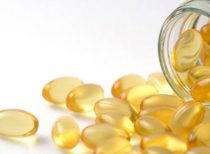 Simple vitamin D supplementation could halt covid pandemic, research finds
Simple vitamin D supplementation could halt covid pandemic, research finds
Dec 13,2021 1:00 pm
-
 Only TRUE Believers Can See The Signs
Only TRUE Believers Can See The Signs
Nov 23,2021 11:59 am
-
 Why Michelangelo Painted Ezekiel on the Sistine Chapel Ceiling So Muscular
Why Michelangelo Painted Ezekiel on the Sistine Chapel Ceiling So Muscular
Nov 22,2021 5:03 pm
-
 The Columbus Moment 2022 – Ark To Paradise – Fleeing Protestant Persecution
The Columbus Moment 2022 – Ark To Paradise – Fleeing Protestant Persecution
Nov 20,2021 12:21 pm
-
 Do we Lose our Salvation if our DNA is Changed? 11/12/2021
Do we Lose our Salvation if our DNA is Changed? 11/12/2021
Nov 12,2021 9:04 am
-
 Russ Dizdar Obituary, Death, Tributes, Cause Of Death, Funeral
Russ Dizdar Obituary, Death, Tributes, Cause Of Death, Funeral
Oct 22,2021 3:03 pm
-
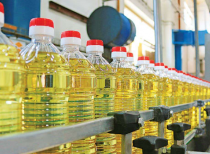 Dr. Chris A. Knobbe verifies processed oils are at the core of nearly all disease
Dr. Chris A. Knobbe verifies processed oils are at the core of nearly all disease
Oct 21,2021 6:35 am
-
 Rob Skiba Obituary Dallas, TX, Author Rob Skiba Covid-19 Death
Rob Skiba Obituary Dallas, TX, Author Rob Skiba Covid-19 Death
Oct 19,2021 10:00 am
-
 Interview: William Davis MD Author of Wheat Belly
Interview: William Davis MD Author of Wheat Belly
Oct 04,2021 2:01 pm
-
 Strawberry Short the Cake Dessert – 175 calorie Thawberries and Reddi Wip Topping
Strawberry Short the Cake Dessert – 175 calorie Thawberries and Reddi Wip Topping
Oct 03,2021 10:00 am
-
 Which Fry is the Better Choice: Potato vs. Sweet Potato?
Which Fry is the Better Choice: Potato vs. Sweet Potato?
Oct 03,2021 8:52 am
-
 It’s a Pandemic of the Old, Fat, Vaccinated, Sick and Undernourished
It’s a Pandemic of the Old, Fat, Vaccinated, Sick and Undernourished
Sep 27,2021 5:04 pm
-
 Hydrogen Peroxide Nebulization and COVID Resolution Impressive Anecdotal Results
Hydrogen Peroxide Nebulization and COVID Resolution Impressive Anecdotal Results
Sep 22,2021 1:31 pm
-
 Research Confirms Sweating Detoxifies Dangerous Metals, Petrochemicals
Research Confirms Sweating Detoxifies Dangerous Metals, Petrochemicals
Sep 22,2021 12:30 pm
-
 Linus Pauling’s Recommendations for Vitamin C and Lysine
Linus Pauling’s Recommendations for Vitamin C and Lysine
Sep 22,2021 11:11 am
-
 Dr. Russell Blaylock – Nutrition and Behavior, the Dangers of Aspartame and MSG on Brain Function
Dr. Russell Blaylock – Nutrition and Behavior, the Dangers of Aspartame and MSG on Brain Function
Sep 17,2021 10:04 am
-
 Dr. Mercola discusses Hydrogen Peroxide Nebulization
Dr. Mercola discusses Hydrogen Peroxide Nebulization
Sep 16,2021 2:55 pm
-
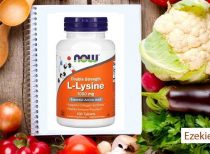 Virologists reveal how poor man’s amino acid cure for COVID-19 would abolish need for vaccines
Virologists reveal how poor man’s amino acid cure for COVID-19 would abolish need for vaccines
Sep 14,2021 7:03 pm
-
 Getting Your Affairs In Order – Estate Planning
Getting Your Affairs In Order – Estate Planning
Sep 06,2021 2:02 pm
-
 Christian Non-Profit TeleMedicine MyFreeDoctor.com – Early MULTI DRUG treatment at home saves lives!
Christian Non-Profit TeleMedicine MyFreeDoctor.com – Early MULTI DRUG treatment at home saves lives!
Aug 25,2021 8:50 am
-
 Are you getting enough vitamin D? Low levels linked to compromised immune function
Are you getting enough vitamin D? Low levels linked to compromised immune function
Jul 30,2021 1:49 pm
-
 The Mark And The Number Of His Name The Whole Truth – Walter Veith
The Mark And The Number Of His Name The Whole Truth – Walter Veith
Jul 26,2021 10:33 am
-
 Walter Veith – The Moment Of Crisis
Walter Veith – The Moment Of Crisis
Jul 22,2021 11:47 am
-
 Secret Covenant of the Illuminati | New World Order
Secret Covenant of the Illuminati | New World Order
Jul 21,2021 9:52 am
-
 Updated Skinny Pumpkin Pie and Skinny Cheesecake Recipe Ideas and Instructions
Updated Skinny Pumpkin Pie and Skinny Cheesecake Recipe Ideas and Instructions
Jul 13,2021 11:16 am
-
 The “Junque” People Hoard Until Death and Leave for Estate Sale Firms To Clean Up
The “Junque” People Hoard Until Death and Leave for Estate Sale Firms To Clean Up
Jun 14,2021 9:55 am
-
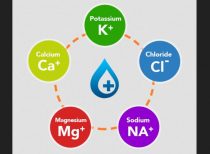 Electrolyte Imbalance: Conditions & Concerns – Too Much or Too Little Potassium
Electrolyte Imbalance: Conditions & Concerns – Too Much or Too Little Potassium
May 02,2021 8:12 am
-
 Eugenics, Fluoride & Vaccines – Neurosurgeon, Dr. Russell Blaylock
Eugenics, Fluoride & Vaccines – Neurosurgeon, Dr. Russell Blaylock
Apr 13,2021 8:47 am
-
 Colloidal Silver – The Blue Man Fraud
Colloidal Silver – The Blue Man Fraud
Apr 05,2021 9:05 am
-
 Vitamin D deficiency is the primary cause of covid hospitalizations and deaths
Vitamin D deficiency is the primary cause of covid hospitalizations and deaths
Mar 31,2021 9:27 am
-
 God’s great reset
God’s great reset
Mar 24,2021 6:13 pm
-
 The 10 Best Foods to Boost Nitric Oxide Levels
The 10 Best Foods to Boost Nitric Oxide Levels
Mar 23,2021 5:12 pm
-
 Vitamin B6 found to reduce the severity of COVID-19
Vitamin B6 found to reduce the severity of COVID-19
Mar 23,2021 9:02 am
-
 Foods That Boost A Slow Metabolism And Repair Metabolic Damage
Foods That Boost A Slow Metabolism And Repair Metabolic Damage
Mar 20,2021 7:15 am
-
 Dental Wisdom: Dental Provider Network Discounts verses Dental Insurance
Dental Wisdom: Dental Provider Network Discounts verses Dental Insurance
Mar 15,2021 12:11 pm
-
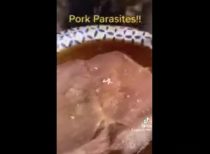 Fresh Pork Parasites Don’t Like Pepsi! Must See
Fresh Pork Parasites Don’t Like Pepsi! Must See
Mar 10,2021 4:36 pm
-
 Stan Johnson: Direct Attack on Christians – 3 Parts
Stan Johnson: Direct Attack on Christians – 3 Parts
Mar 03,2021 11:11 am
-
 Virologists Report Poor Man’s Amino Acid Cure for Covid-19 Would Abolish Need for Vaccines
Virologists Report Poor Man’s Amino Acid Cure for Covid-19 Would Abolish Need for Vaccines
Feb 22,2021 3:08 pm
-
 Must Know: Satan’s Strategy for Protestants in America
Must Know: Satan’s Strategy for Protestants in America
Feb 21,2021 10:34 am
-
 Dr. Luke Prophet on Current Events and Bible Prophecy
Dr. Luke Prophet on Current Events and Bible Prophecy
Feb 17,2021 12:54 pm
-
 Baby Boomer discounts you have to ask for. Ask Not Have Not.
Baby Boomer discounts you have to ask for. Ask Not Have Not.
Feb 11,2021 10:39 am
-
 How Ashwagandha Works To Control Stress, Anxiety and Cortisol from Trump-be-gone-dha
How Ashwagandha Works To Control Stress, Anxiety and Cortisol from Trump-be-gone-dha
Feb 10,2021 12:50 pm
-
 Let me tell you why you are here. You’re being slowly murdered by design.
Let me tell you why you are here. You’re being slowly murdered by design.
Feb 10,2021 9:23 am
-
 Seek The LORD While He May Be Found
Seek The LORD While He May Be Found
Feb 09,2021 8:42 am
-
 Free Ezekiel Diet Condensed PDF – Pictures, Meals, Desserts, and Secrets
Free Ezekiel Diet Condensed PDF – Pictures, Meals, Desserts, and Secrets
Feb 09,2021 8:17 am
-
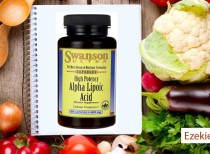 Lower your blood sugar and prevent nerve damage linked to diabetes with alpha-lipoic acid
Lower your blood sugar and prevent nerve damage linked to diabetes with alpha-lipoic acid
Feb 09,2021 8:16 am
-
 Updated: Making Perfect Shirts Without Spending a Fortune
Updated: Making Perfect Shirts Without Spending a Fortune
Feb 05,2021 11:39 am
-
 British legislator calls for widespread vitamin D rollout following 82% reduction in COVID-19 deaths in Spain
British legislator calls for widespread vitamin D rollout following 82% reduction in COVID-19 deaths in Spain
Jan 23,2021 12:10 pm
-
 Good News – The astonishing case for optimism and faith
Good News – The astonishing case for optimism and faith
Jan 21,2021 1:25 pm
-
 What Are The Benefits of Himalayan Crystal Salt Lamps? Why Should You Use Salt Lamps?
What Are The Benefits of Himalayan Crystal Salt Lamps? Why Should You Use Salt Lamps?
Jan 17,2021 10:12 am
-
 30 Easy Ways to Lose Weight Naturally (Backed by Science)
30 Easy Ways to Lose Weight Naturally (Backed by Science)
Jan 12,2021 6:28 am
-
 Battling the Enemy: Spiritual Warfare in Weight Loss
Battling the Enemy: Spiritual Warfare in Weight Loss
Jan 08,2021 7:21 am
-
 Study: Eating One Bar of Dark Chocolate can Reduce “Excess Body Fat” in One Week
Study: Eating One Bar of Dark Chocolate can Reduce “Excess Body Fat” in One Week
Jan 04,2021 10:15 am
-
 The Who and Why Truth Behind the Deceptive Matrix We Live In
The Who and Why Truth Behind the Deceptive Matrix We Live In
Jan 04,2021 10:00 am
-
 The Missing Ingredient to Lasting Weight Loss That Secular Programs Just Don’t Get
The Missing Ingredient to Lasting Weight Loss That Secular Programs Just Don’t Get
Jan 04,2021 9:29 am
-
 Blessing – and breaking – the very makeup of food
Blessing – and breaking – the very makeup of food
Dec 31,2020 3:08 pm
-
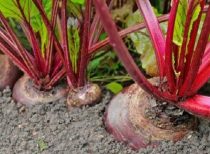 I Am 60 Years Old And This Plant Returned My Vision, Removed Fat From My Liver And Cleansed My Colon
I Am 60 Years Old And This Plant Returned My Vision, Removed Fat From My Liver And Cleansed My Colon
Dec 25,2020 3:20 pm
-
 Green tea compounds block key enzyme that allows coronavirus to replicate – study
Green tea compounds block key enzyme that allows coronavirus to replicate – study
Dec 16,2020 8:59 am
-
 Organic strawberries can stop the growth of cancer cells – science explains how
Organic strawberries can stop the growth of cancer cells – science explains how
Dec 01,2020 8:35 pm
-
 Shared Wisdom: Avoid starting over.
Shared Wisdom: Avoid starting over.
Nov 29,2020 10:17 am
-
 Skinny Cheesecake & Graham Cracker Crust Only 77 Calories Per Slice
Skinny Cheesecake & Graham Cracker Crust Only 77 Calories Per Slice
Nov 25,2020 12:56 pm
-
 True Food Kitchen Butternut Squash Pie Recipe – Holiday Pie Idea
True Food Kitchen Butternut Squash Pie Recipe – Holiday Pie Idea
Nov 25,2020 9:01 am
-
 Skinny Pie and Healthy Dessert Idea Index
Skinny Pie and Healthy Dessert Idea Index
Nov 25,2020 6:35 am
-
 Tom Horn: The Evil Gene and Lucifer Effect
Tom Horn: The Evil Gene and Lucifer Effect
Oct 26,2020 10:48 am
-
 Next Hoax – Alien Invasion Fast Tracks Global Religion – Dr. Steven Greer, Tom Horn, Cris Putnam
Next Hoax – Alien Invasion Fast Tracks Global Religion – Dr. Steven Greer, Tom Horn, Cris Putnam
Oct 25,2020 8:21 am
-
 Do we get a reformatting memory wipe in heaven? Yes.
Do we get a reformatting memory wipe in heaven? Yes.
Oct 08,2020 11:01 am
-
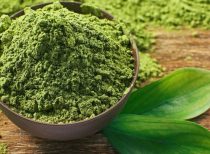 Green tea, zinc proving BETTER than hydroxychloroquine at fighting coronavirus?
Green tea, zinc proving BETTER than hydroxychloroquine at fighting coronavirus?
Oct 03,2020 8:54 am
-
 30 Day Emergency Food Supply for 4 from Mart and Dollar Stores
30 Day Emergency Food Supply for 4 from Mart and Dollar Stores
Sep 29,2020 6:39 am
-
 Now when these things begin to happen, look up and lift up your heads, because your redemption draws near.
Now when these things begin to happen, look up and lift up your heads, because your redemption draws near.
Sep 25,2020 8:43 am
-
 Financial Umbrella: Put a Missionary on the Payroll
Financial Umbrella: Put a Missionary on the Payroll
Sep 07,2020 6:06 am
-
 Perfect Example of How Words Spoken Out Loud Are Programming in this Matrix
Perfect Example of How Words Spoken Out Loud Are Programming in this Matrix
Aug 27,2020 2:54 pm
-
 Better brain health | DW Documentary
Better brain health | DW Documentary
Aug 02,2020 2:02 pm
-
 How To Prove To Yourself We Live In A Simulation Programmed By Prayer
How To Prove To Yourself We Live In A Simulation Programmed By Prayer
Jul 30,2020 11:38 am
-
 Top 10 fruits doused in toxic chemicals
Top 10 fruits doused in toxic chemicals
Jul 21,2020 6:29 am
-
 ‘Black Injustice In The Old South’ Movies – How Hollywood Helped Foment Race War In America
‘Black Injustice In The Old South’ Movies – How Hollywood Helped Foment Race War In America
Jun 12,2020 9:33 am
-
 ‘Upload’ Is the Latest Predictive Programming Depicting the Afterlife as Simulation – Hard Drive Selfie
‘Upload’ Is the Latest Predictive Programming Depicting the Afterlife as Simulation – Hard Drive Selfie
May 31,2020 5:57 pm
-
 THE MOST ENLIGHTENING CONVERSATION ON DEMONOLOGY EVER!
THE MOST ENLIGHTENING CONVERSATION ON DEMONOLOGY EVER!
May 19,2020 5:17 pm
-
 Take Back Your Mind, Energy Levels and Eliminate Dry Skin and Wiry Hair
Take Back Your Mind, Energy Levels and Eliminate Dry Skin and Wiry Hair
May 08,2020 12:37 pm
-
 Book: Behind the Dictators – The strategy to manually fulfill the futurist Antichrist thesis
Book: Behind the Dictators – The strategy to manually fulfill the futurist Antichrist thesis
Apr 29,2020 9:56 am
-
 2020 to 2022 Stan Johnson on Omegaman 04/17/2020
2020 to 2022 Stan Johnson on Omegaman 04/17/2020
Apr 18,2020 9:55 am
-
 MISS THE MARK: Don’t take the Mark of the Beast – Stan Johnson Prophecy Club
MISS THE MARK: Don’t take the Mark of the Beast – Stan Johnson Prophecy Club
Apr 17,2020 8:12 pm
-
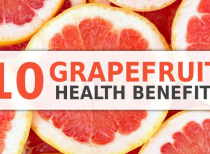 10 Health Benefits of Grapefruits
10 Health Benefits of Grapefruits
Apr 16,2020 9:33 pm
-
 Where is all this going? The Mark of the Beast.
Where is all this going? The Mark of the Beast.
Apr 12,2020 7:47 pm
-
 America in Bible Prophecy – Jonathan Gray
America in Bible Prophecy – Jonathan Gray
Mar 29,2020 10:18 am
-
 $550 Whole House Fluoride, Chlorine, Lead, Contaminant Filter from Lowe’s or Home Depot
$550 Whole House Fluoride, Chlorine, Lead, Contaminant Filter from Lowe’s or Home Depot
Mar 28,2020 9:03 pm
-
 Psalm 91
Psalm 91
Mar 26,2020 10:19 am
-
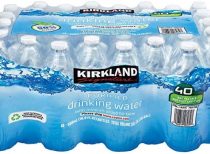 Is Kirkland Water From Costco Bad For You?
Is Kirkland Water From Costco Bad For You?
Feb 29,2020 6:26 am
-
 DEPOPULATION: Death in America Is Alive & Well
DEPOPULATION: Death in America Is Alive & Well
Feb 24,2020 8:23 am
-
 Prayer, Driving and a Coronavirus Reminder
Prayer, Driving and a Coronavirus Reminder
Feb 11,2020 1:49 pm
-
 Portable Water Purification – Why, How, and Where – Boiling, Clorox, and Portable Filters
Portable Water Purification – Why, How, and Where – Boiling, Clorox, and Portable Filters
Feb 01,2020 6:00 am
-
 The Scheme to Double Lifetime Revenue on Every American
The Scheme to Double Lifetime Revenue on Every American
Jan 14,2020 9:42 am
-
 You are in a WAR for the Health of Your Brain – Daniel Amen M.D.
You are in a WAR for the Health of Your Brain – Daniel Amen M.D.
Jan 06,2020 2:45 pm
-
 Free Ezekiel Diet Fresh Food Grocery List – with Calorie Count & Serving Sizes
Free Ezekiel Diet Fresh Food Grocery List – with Calorie Count & Serving Sizes
Jan 06,2020 9:05 am
-
 What happens in your body within one hour after you drink a Coca-Cola
What happens in your body within one hour after you drink a Coca-Cola
Jan 06,2020 6:44 am
-
 Fried Food May Be Killing You, a New Study Says.
Fried Food May Be Killing You, a New Study Says.
Dec 27,2019 11:30 am
-
 The Possibility: 4K Ultra High Definition Smart TVs in Place of Static Art
The Possibility: 4K Ultra High Definition Smart TVs in Place of Static Art
Dec 23,2019 8:33 am
-
 The Problem with Stevia – Dr. Berg
The Problem with Stevia – Dr. Berg
Dec 10,2019 1:23 pm
-
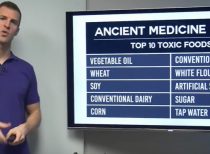 Top 10 Toxic Foods and Top 10 Healing Foods | Dr. Josh Axe
Top 10 Toxic Foods and Top 10 Healing Foods | Dr. Josh Axe
Dec 01,2019 12:03 pm
-
 “The Inquisition Was Particularly Hard On Us.” Tour Guide in Cartagena, Columbia
“The Inquisition Was Particularly Hard On Us.” Tour Guide in Cartagena, Columbia
Nov 20,2019 2:53 pm
-
 How To Lose Belly Fat Naturally Without Exercise – Dr. Stan Ekberg
How To Lose Belly Fat Naturally Without Exercise – Dr. Stan Ekberg
Oct 20,2019 1:34 pm
-
 Are Fast Food Giants Struggling Because Many Are Waking Up To How Fast Food Is Making Them Sick, Tired & Fat?
Are Fast Food Giants Struggling Because Many Are Waking Up To How Fast Food Is Making Them Sick, Tired & Fat?
Oct 18,2019 1:38 pm
-
 Fasting vs. Eating Less: What’s the Difference? (Science of Fasting)
Fasting vs. Eating Less: What’s the Difference? (Science of Fasting)
Oct 18,2019 11:33 am
-
 Man’s health radically transforms after just 30 days off sugar and alcohol
Man’s health radically transforms after just 30 days off sugar and alcohol
Oct 18,2019 8:27 am
-
 Farmed Salmon — One of the Most Toxic Foods in the World?
Farmed Salmon — One of the Most Toxic Foods in the World?
Sep 24,2019 3:39 pm
-
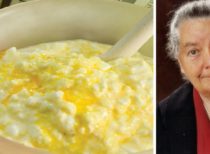 Did She Turn 2 Simple Ingredients Into a Cure For Cancer? Dr. Johanna Budwig
Did She Turn 2 Simple Ingredients Into a Cure For Cancer? Dr. Johanna Budwig
Sep 24,2019 9:31 am
-
 GMO Food — It’s Worse Than We Thought – Dr. Russell Blaylock
GMO Food — It’s Worse Than We Thought – Dr. Russell Blaylock
Sep 24,2019 6:21 am
-
 Stunned researchers discover walking dramatically boosts blood flow to the brain, boosting cognitive function
Stunned researchers discover walking dramatically boosts blood flow to the brain, boosting cognitive function
Sep 24,2019 6:00 am
-
 How to Lower Cortisol – Dr. Berg
How to Lower Cortisol – Dr. Berg
Sep 11,2019 9:40 pm
-
 Star Signs Converging Now Predict the Return of Jesus – Jonathan Gray Archeologist
Star Signs Converging Now Predict the Return of Jesus – Jonathan Gray Archeologist
Sep 10,2019 9:33 am
-
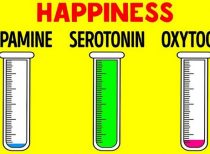 How Hormones Influence You and Your Mind
How Hormones Influence You and Your Mind
Sep 09,2019 5:59 pm
-
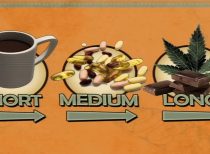 Long life depends on this: Gary Wenk TedX Talk
Long life depends on this: Gary Wenk TedX Talk
Sep 09,2019 3:44 pm
-
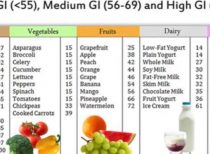 The Carbs that are Worse than Sugar
The Carbs that are Worse than Sugar
Sep 06,2019 12:35 pm
-
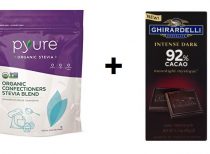 Dark Chocolate Hack To Reduce Sugar & Insulin Spikes
Dark Chocolate Hack To Reduce Sugar & Insulin Spikes
Sep 06,2019 10:51 am
-
 The Average Physical Condition of 4,100 Passengers on a Cruise Ship
The Average Physical Condition of 4,100 Passengers on a Cruise Ship
Sep 02,2019 8:40 am
-
 15 Intermittent Fasting Mistakes That Make You Gain Weight
15 Intermittent Fasting Mistakes That Make You Gain Weight
Sep 01,2019 4:53 pm
-
 Are You Salt Sensitive or Potassium Deficient
Are You Salt Sensitive or Potassium Deficient
Sep 01,2019 12:17 pm
-
 FASTING AWAY DIABESITY? Ft. Jason Fung, Nephrologist & Best-selling author
FASTING AWAY DIABESITY? Ft. Jason Fung, Nephrologist & Best-selling author
Sep 01,2019 11:30 am
-
 How Corporations Ruined Food (Food Industry Documentary) – Real Stories
How Corporations Ruined Food (Food Industry Documentary) – Real Stories
Aug 11,2019 10:56 am
-
 How Much Coffee Should I Drink Daily?
How Much Coffee Should I Drink Daily?
Jul 22,2019 6:33 am
-
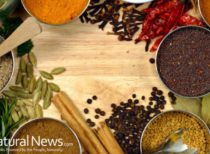 6 Household Spices that Destroy Cancer Cells, Prevent Heart Attacks & Rebuilds Our Gut
6 Household Spices that Destroy Cancer Cells, Prevent Heart Attacks & Rebuilds Our Gut
Jul 21,2019 8:20 am
-
 Powerful Antioxidants to Longevity
Powerful Antioxidants to Longevity
Jul 20,2019 12:57 pm
-
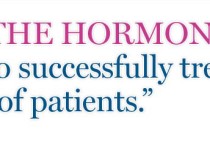 The hormone balance plan – The Hormone Diet – by Dr. Natasha Turner
The hormone balance plan – The Hormone Diet – by Dr. Natasha Turner
Jul 16,2019 6:58 am
-
 Science Says 1 Minute of this Exercise is = to 45 min. of Jogging
Science Says 1 Minute of this Exercise is = to 45 min. of Jogging
Jul 05,2019 10:49 am
-
 Stop Eating Poison – John McDougall MD
Stop Eating Poison – John McDougall MD
Jun 29,2019 10:34 am
-
 Simple Keto Meal Plan For The Week – Burn Fat and Lose Weight
Simple Keto Meal Plan For The Week – Burn Fat and Lose Weight
Jun 24,2019 6:54 pm
-
 10 Best Ways To Avoid Weight Gain On A Cruise
10 Best Ways To Avoid Weight Gain On A Cruise
Jun 24,2019 4:30 pm
-
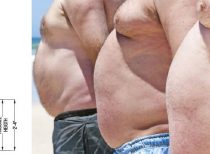 How To Measure Your Depth & What Is Average Depth?
How To Measure Your Depth & What Is Average Depth?
Jun 22,2019 8:22 pm
-
 Costco Roasted Organic Chicken Wings & Vegetables
Costco Roasted Organic Chicken Wings & Vegetables
Jun 22,2019 7:04 pm
-
 7 Cooking Oils Explained At Costco..The Good, Bad & Toxic!
7 Cooking Oils Explained At Costco..The Good, Bad & Toxic!
Jun 21,2019 12:08 pm
-
 EZ Diet Meal Idea – Roasted Chicken & Vegetables in 30 Minutes
EZ Diet Meal Idea – Roasted Chicken & Vegetables in 30 Minutes
Jun 02,2019 8:54 pm
-
 Raspberries prevent cancer, diabetes, obesity, and arthritis!
Raspberries prevent cancer, diabetes, obesity, and arthritis!
May 31,2019 12:23 pm
-
 What Nutrition Experts Eat On Vacation
What Nutrition Experts Eat On Vacation
May 31,2019 10:18 am
-
 1/2 BBQ Chicken, Fries, Cole Slaw = 4,000 mg Sodium and requires 12,000 mg Potassium to Balance
1/2 BBQ Chicken, Fries, Cole Slaw = 4,000 mg Sodium and requires 12,000 mg Potassium to Balance
May 31,2019 9:48 am
-
 The Benefits of Vitamin C With Rose Hips for Skin Tone
The Benefits of Vitamin C With Rose Hips for Skin Tone
May 31,2019 9:01 am
-
 What the Dairy Industry Doesn’t Want You to Know – Neal Barnard MD
What the Dairy Industry Doesn’t Want You to Know – Neal Barnard MD
May 24,2019 9:51 am
-
 Why Chinese cinnamon should be part of your weight loss plans
Why Chinese cinnamon should be part of your weight loss plans
May 21,2019 9:53 pm
-
 Worried about your blood sugar? Experts recommend checking your magnesium levels
Worried about your blood sugar? Experts recommend checking your magnesium levels
May 21,2019 7:03 am
-
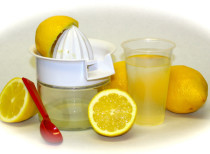 Top five weight loss detox plans
Top five weight loss detox plans
May 21,2019 6:38 am
-
 HISTORY OF RELIGION (Part 1): PAGANS, NIMROD, & BABYLON
HISTORY OF RELIGION (Part 1): PAGANS, NIMROD, & BABYLON
May 19,2019 5:31 pm
-
 Scientists explore chestnut flower for its anti-obesity properties
Scientists explore chestnut flower for its anti-obesity properties
May 16,2019 8:31 am
-
 Tongbi-san can be used to treat obesity,
Tongbi-san can be used to treat obesity,
May 12,2019 8:32 am
-
 Sweet superfood: The 6 health benefits of nutrient-rich sweet potatoes
Sweet superfood: The 6 health benefits of nutrient-rich sweet potatoes
May 11,2019 3:45 pm
-
 Eating to beat depression: Foods that improve your gut health also improve your mental health
Eating to beat depression: Foods that improve your gut health also improve your mental health
May 11,2019 3:40 pm
-
 Overweight in the Workplace (HBO: The Weight of the Nation)
Overweight in the Workplace (HBO: The Weight of the Nation)
Apr 24,2019 7:04 pm
-
 GMO basics for natural health – How to avoid and why you may need to detox
GMO basics for natural health – How to avoid and why you may need to detox
Apr 11,2019 11:06 am
-
 3 Cooking Rules for Maintaining Nutritional Value in Vegetables
3 Cooking Rules for Maintaining Nutritional Value in Vegetables
Apr 11,2019 8:32 am
-
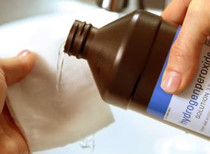 24 Reasons Why Hydrogen Peroxide Should Be In Your Home
24 Reasons Why Hydrogen Peroxide Should Be In Your Home
Apr 11,2019 8:12 am
-
 How Walking 15 Minutes Per Day Can Change Your Body
How Walking 15 Minutes Per Day Can Change Your Body
Apr 10,2019 12:18 pm
-
 The Mystery of Babylon the Great Solved
The Mystery of Babylon the Great Solved
Apr 08,2019 2:39 pm
-
 Food Industry’s Secret Weapon (WHY Sugar is addictive & in 80% of Food)
Food Industry’s Secret Weapon (WHY Sugar is addictive & in 80% of Food)
Apr 08,2019 11:43 am
-
 Three-quarters of world’s population now overweight or obese…
Three-quarters of world’s population now overweight or obese…
Mar 31,2019 11:03 am
-
 Mediterranean diet found to reduce risk of premature death by 30 percent, new studies reveal
Mediterranean diet found to reduce risk of premature death by 30 percent, new studies reveal
Mar 31,2019 10:15 am
-
 5 Habits That Are Keeping You From Losing Those Last 10 Pounds
5 Habits That Are Keeping You From Losing Those Last 10 Pounds
Mar 31,2019 9:59 am
-
 Game Changer: Cash-only doctors are causing panic in the insurance industry
Game Changer: Cash-only doctors are causing panic in the insurance industry
Mar 31,2019 8:53 am
-
 Your cash register receipts are full of dangerous chemicals
Your cash register receipts are full of dangerous chemicals
Mar 31,2019 6:00 am
-
 The Real Reason We Bake Everything At 350 Degrees
The Real Reason We Bake Everything At 350 Degrees
Mar 23,2019 7:49 pm
-
 Vitamin D deficiency causes weight gain; here’s how to drop the pounds effortlessly
Vitamin D deficiency causes weight gain; here’s how to drop the pounds effortlessly
Mar 18,2019 8:42 am
-
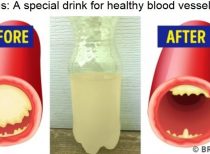 15 Foods That Reduce Your Heart Attack Risk by 80%
15 Foods That Reduce Your Heart Attack Risk by 80%
Mar 08,2019 8:28 pm
-
 How to convert all your music to 432 Hz FREE and Easy – The 432 Player
How to convert all your music to 432 Hz FREE and Easy – The 432 Player
Feb 28,2019 10:27 pm
-
 Sample Meals on the EZ Diet and the 34337 System
Sample Meals on the EZ Diet and the 34337 System
Feb 10,2019 7:06 am
-
 How I’ve Maintained an EZ 100 Pound Weight Loss
How I’ve Maintained an EZ 100 Pound Weight Loss
Feb 10,2019 6:43 am
-
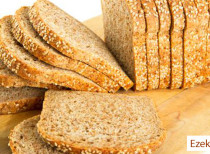 Why Ezekiel Bread is The Healthiest Bread You Can Eat
Why Ezekiel Bread is The Healthiest Bread You Can Eat
Feb 10,2019 6:07 am
-
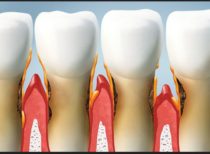 Coenzyme Q10 is an effective weapon against gum disease
Coenzyme Q10 is an effective weapon against gum disease
Feb 02,2019 9:09 am
-
 Keith Foster on the Health Benefits of C60 Charcoal
Keith Foster on the Health Benefits of C60 Charcoal
Jan 26,2019 12:46 pm
-
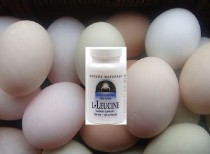 The One Amino Acid You Should Be Eating to Lose 62% More Fat
The One Amino Acid You Should Be Eating to Lose 62% More Fat
Jan 24,2019 9:40 am
-
 How To Do Coconut Oil Pulling for Healthy Teeth & Gums by Dr. Axe
How To Do Coconut Oil Pulling for Healthy Teeth & Gums by Dr. Axe
Jan 24,2019 8:52 am
-
 Spinach extract improves weight loss by almost 50%, can eliminate food cravings
Spinach extract improves weight loss by almost 50%, can eliminate food cravings
Jan 24,2019 8:19 am
-
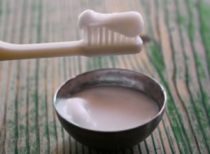 Natural homemade toothpaste heals cavities while whitening teeth
Natural homemade toothpaste heals cavities while whitening teeth
Jan 24,2019 7:40 am
-
 Mark Zuckerberg tapes over his webcam. Should you? MySpyBlocker Lense Stickers $9.99
Mark Zuckerberg tapes over his webcam. Should you? MySpyBlocker Lense Stickers $9.99
Jan 24,2019 6:26 am
-
 Want to boost weight loss? Try turmeric
Want to boost weight loss? Try turmeric
Jan 24,2019 6:00 am
-
 Top 10 food chemicals that are making you fat
Top 10 food chemicals that are making you fat
Jan 24,2019 5:57 am
-
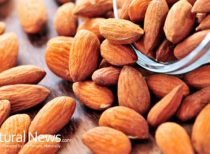 7 Best Low Carb Snacks For Work
7 Best Low Carb Snacks For Work
Jan 22,2019 8:50 pm
-
 Why You Should Always Keep Activated Charcoal On Hand – A Natural Life-Saving First Aid Essential
Why You Should Always Keep Activated Charcoal On Hand – A Natural Life-Saving First Aid Essential
Jan 21,2019 8:39 am
-
 What is The One Minute Cure by Madison Cavanaugh?
What is The One Minute Cure by Madison Cavanaugh?
Jan 13,2019 9:53 am
-
 A CUP A DAY…CLEAR CLOGGED ARTERIES AND HEART – Dr Alan Mandell, DC
A CUP A DAY…CLEAR CLOGGED ARTERIES AND HEART – Dr Alan Mandell, DC
Jan 02,2019 9:10 am
-
 AMAZING Baked (Not Fried) Crispy Chicken Wings!
AMAZING Baked (Not Fried) Crispy Chicken Wings!
Jan 01,2019 5:30 pm
-
 The Great Boomer Deception
The Great Boomer Deception
Dec 30,2018 2:21 pm
-
 7 Healthy Diet Secrets You Can Act On Right Now
7 Healthy Diet Secrets You Can Act On Right Now
Dec 30,2018 6:49 am
-
 4 Healthy Breakfast Ideas For Weight Loss -TheSeriousFitness
4 Healthy Breakfast Ideas For Weight Loss -TheSeriousFitness
Dec 17,2018 8:12 pm
-
 4 Healthy Vegan Recipes For Weight Loss
4 Healthy Vegan Recipes For Weight Loss
Dec 13,2018 8:36 pm
-
 Ultimate Guide to Low Carb Sweeteners | Blood Testing | Avoid These 3!!
Ultimate Guide to Low Carb Sweeteners | Blood Testing | Avoid These 3!!
Dec 13,2018 12:48 pm
-
 Health Benefits of Dates – Promoting Heart, Brain, and Digestive Health
Health Benefits of Dates – Promoting Heart, Brain, and Digestive Health
Dec 12,2018 8:43 am
-
 The Power of Your Mind On Your Health and Longevity – Success begins with a Thought + Faith.
The Power of Your Mind On Your Health and Longevity – Success begins with a Thought + Faith.
Dec 12,2018 8:22 am
-
 How to Avoid Being Secretly Poisoned by MSG
How to Avoid Being Secretly Poisoned by MSG
Dec 12,2018 7:30 am
-
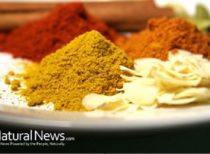 Seven spices that could save your life!
Seven spices that could save your life!
Dec 12,2018 7:15 am
-
 10 negative-calorie foods that are weight-loss miracles
10 negative-calorie foods that are weight-loss miracles
Dec 12,2018 7:09 am
-
 Scientists paid off to suppress the truth about harmful effects of SUGAR
Scientists paid off to suppress the truth about harmful effects of SUGAR
Dec 06,2018 10:38 am
-
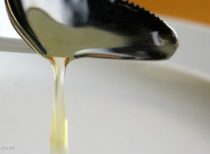 Food companies hiding harmful high fructose corn syrup under new name
Food companies hiding harmful high fructose corn syrup under new name
Dec 06,2018 9:04 am
-
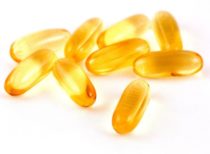 Omega-3 Fatty Acids – The Ultimate Beginner’s Guide
Omega-3 Fatty Acids – The Ultimate Beginner’s Guide
Dec 06,2018 7:43 am
-
 9 Ways That Processed Foods Are Slowly Killing People
9 Ways That Processed Foods Are Slowly Killing People
Dec 06,2018 7:24 am
-
 Repairing an Out-of-Warranty Big Screen TV Yourself for $100 or less
Repairing an Out-of-Warranty Big Screen TV Yourself for $100 or less
Dec 03,2018 9:15 am
-
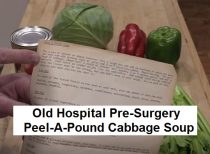 Old Hospital Pre-Surgery – Peel-A Pound Cabbage Soup
Old Hospital Pre-Surgery – Peel-A Pound Cabbage Soup
Nov 28,2018 10:19 am
-
 New study concludes that just 2 weeks of sedentary behavior can trigger diabetes symptoms
New study concludes that just 2 weeks of sedentary behavior can trigger diabetes symptoms
Nov 27,2018 11:26 am
-
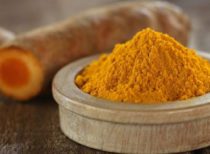 Compelling study confirms the therapeutic effects of curcumin in removing fluoride from our bodies
Compelling study confirms the therapeutic effects of curcumin in removing fluoride from our bodies
Nov 27,2018 11:17 am
-
 Is it really healthier to eat at home? Large-scale research reveals the truth
Is it really healthier to eat at home? Large-scale research reveals the truth
Nov 20,2018 8:31 am
-
 Two nutrients slash death from cardiovascular disease by 50 percent
Two nutrients slash death from cardiovascular disease by 50 percent
Nov 19,2018 6:02 am
-
 Baked Cabbage Steaks with Butter, Garlic, Smoked Paprika, Pepper, Olive Oil
Baked Cabbage Steaks with Butter, Garlic, Smoked Paprika, Pepper, Olive Oil
Nov 13,2018 9:48 pm
-
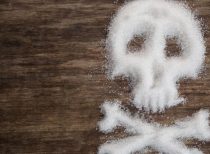 Sucralose EXPOSED – Artificial sweetener proven in studies to generate cancerous tumors and fuel obesity
Sucralose EXPOSED – Artificial sweetener proven in studies to generate cancerous tumors and fuel obesity
Nov 13,2018 1:41 pm
-
 A Chinese herbal complex can prevent renal injury in patients with Type 2 diabetes
A Chinese herbal complex can prevent renal injury in patients with Type 2 diabetes
Nov 08,2018 1:03 pm
-
 It’s not that heart disease and obesity runs in your family, it’s that nobody in your family RUNS
It’s not that heart disease and obesity runs in your family, it’s that nobody in your family RUNS
Nov 05,2018 9:48 am
-
 Revised “The Ezekiel Diet Handbook” Now Available FREE
Revised “The Ezekiel Diet Handbook” Now Available FREE
Nov 05,2018 9:20 am
-
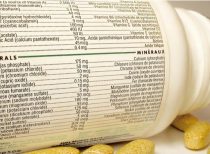 Taking multivitamins can reduce your risk of death from any illness by up to 70%
Taking multivitamins can reduce your risk of death from any illness by up to 70%
Nov 05,2018 9:17 am
-
 Sitting for long periods of time? Study shows just this much movement reduces the damage to circulation
Sitting for long periods of time? Study shows just this much movement reduces the damage to circulation
Oct 26,2018 7:30 am
-
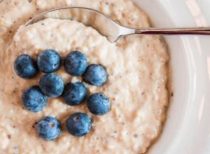 What Happens When You Eat Oatmeal Every Day?
What Happens When You Eat Oatmeal Every Day?
Oct 22,2018 11:11 am
-
 Pumpkin for a strong heart if you’re obese
Pumpkin for a strong heart if you’re obese
Oct 22,2018 9:00 am
-
 Healthier Homemade Instant Oatmeal Packets
Healthier Homemade Instant Oatmeal Packets
Oct 21,2018 11:23 pm
-
 Why Japanese Are So Thin According to Science – Bright Side
Why Japanese Are So Thin According to Science – Bright Side
Oct 21,2018 1:55 pm
-
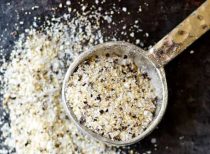 Stone House Seasoning Recipe from Add a Pinch
Stone House Seasoning Recipe from Add a Pinch
Oct 18,2018 2:18 pm
-
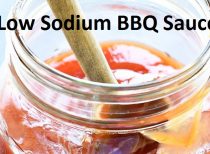 Homemade BBQ Sauce Recipe from Add a Pinch
Homemade BBQ Sauce Recipe from Add a Pinch
Oct 18,2018 12:12 pm
-
 The Best Foods for Long Life – Dr. Joel Fuhrman
The Best Foods for Long Life – Dr. Joel Fuhrman
Oct 16,2018 10:32 am
-
 Florida Ruby Red Grapefruit Harvest Spotted at Costco & Why Grapefruit for Weight Loss?
Florida Ruby Red Grapefruit Harvest Spotted at Costco & Why Grapefruit for Weight Loss?
Oct 13,2018 1:00 pm
-
 Cancer Cure Salesmen – Where To Go After Cancer Diagnosis
Cancer Cure Salesmen – Where To Go After Cancer Diagnosis
Oct 13,2018 12:51 pm
-
 Is Cooking With an Air Fryer Healthy?
Is Cooking With an Air Fryer Healthy?
Oct 08,2018 7:13 pm
-
 Actors Give Advice on Diet & Exercise When They Have To Transform Their Body
Actors Give Advice on Diet & Exercise When They Have To Transform Their Body
Oct 06,2018 5:23 pm
-
 A Day on the Ezekiel Diet in Diary & Photos + Potassium Issues
A Day on the Ezekiel Diet in Diary & Photos + Potassium Issues
Oct 06,2018 12:01 pm
-
 Who knew? Many wines are contaminated with cancer-causing herbicide glyphosate
Who knew? Many wines are contaminated with cancer-causing herbicide glyphosate
Oct 06,2018 9:26 am
-
 Weekend Kabob Idea – Grocery List – How to Pick a Weight Loss Sauce
Weekend Kabob Idea – Grocery List – How to Pick a Weight Loss Sauce
Oct 06,2018 8:44 am
-
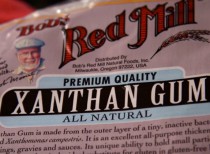 Turning Water Into Oil for Low Calorie Homemade Salad Dressing
Turning Water Into Oil for Low Calorie Homemade Salad Dressing
Oct 06,2018 8:30 am
-
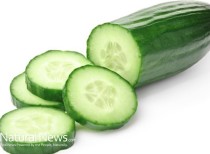 14 Foods that naturally remove toxins from the body
14 Foods that naturally remove toxins from the body
Oct 06,2018 8:11 am
-
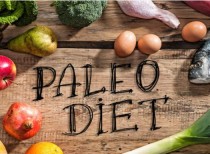 The Paleo Diet Point: What makes it a great diet phenomenon?
The Paleo Diet Point: What makes it a great diet phenomenon?
Oct 06,2018 8:04 am
-
 What you eat can prevent, manage, or treat cancer and diabetes
What you eat can prevent, manage, or treat cancer and diabetes
Sep 28,2018 7:16 am
-
 Dr. Berg: Number 1 Food to Burn Belly Fat
Dr. Berg: Number 1 Food to Burn Belly Fat
Sep 23,2018 6:46 pm
-
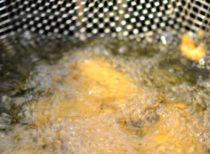 Dr. Russell Blaylock: Restaurant Cooking Oils Raise Risks
Dr. Russell Blaylock: Restaurant Cooking Oils Raise Risks
Sep 23,2018 9:10 am
-
 How to Make the Healthiest Pizza in the World
How to Make the Healthiest Pizza in the World
Sep 23,2018 7:42 am
-
 Top 10 reasons to avoid toxic high-fructose corn syrup
Top 10 reasons to avoid toxic high-fructose corn syrup
Sep 23,2018 7:19 am
-
 Which fruits and vegetables are better for your waistline?
Which fruits and vegetables are better for your waistline?
Sep 16,2018 8:17 am
-
 Fluoridated Water and the Great Culling of the Human Race
Fluoridated Water and the Great Culling of the Human Race
Sep 16,2018 6:25 am
-
 The Purpose of Potassium and Weight Loss – Dr. Eric Berg
The Purpose of Potassium and Weight Loss – Dr. Eric Berg
Sep 13,2018 9:15 am
-
 Benefits of Dandelion Tea – Diuretic, Heavy Metal Detoxification, Candida – Dr. Josh Axe
Benefits of Dandelion Tea – Diuretic, Heavy Metal Detoxification, Candida – Dr. Josh Axe
Sep 11,2018 11:04 am
-
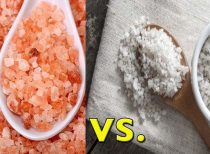 The MASSIVE differences between healthy sea salt and unhealthy iodized, irradiated table salt
The MASSIVE differences between healthy sea salt and unhealthy iodized, irradiated table salt
Sep 09,2018 8:09 am
-
 Top 12 American poisons disguised as food, drink, candy or medicine
Top 12 American poisons disguised as food, drink, candy or medicine
Sep 08,2018 8:26 am
-
 Top 10 foods that keep you healthy as you age
Top 10 foods that keep you healthy as you age
Sep 08,2018 7:49 am
-
 BEWARE of the top 10 toxins in food and medicine that cause the majority of U.S. allergies, diseases and disorders
BEWARE of the top 10 toxins in food and medicine that cause the majority of U.S. allergies, diseases and disorders
Sep 08,2018 7:46 am
-
 Top 7 alarming food modifications you should avoid at ALL COSTS
Top 7 alarming food modifications you should avoid at ALL COSTS
Sep 08,2018 7:36 am
-
 Huge new study proves that eating berries promotes weight loss
Huge new study proves that eating berries promotes weight loss
Sep 08,2018 7:09 am
-
 Dr Mark Hyman: The Truth About Eating Fat to Get Healthy (Audio)
Dr Mark Hyman: The Truth About Eating Fat to Get Healthy (Audio)
Sep 08,2018 6:52 am
-
 If you don’t know anything about light you don’t anything about food – Dr. Jack Kruse
If you don’t know anything about light you don’t anything about food – Dr. Jack Kruse
Sep 05,2018 7:25 pm
-
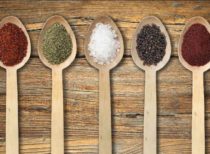 6 “One-Spoonful” Hacks to Lose Weight Effectively
6 “One-Spoonful” Hacks to Lose Weight Effectively
Sep 03,2018 6:23 am
-
 The healing power of sound: Energy fields determine how healthy you are
The healing power of sound: Energy fields determine how healthy you are
Sep 02,2018 7:34 pm
-
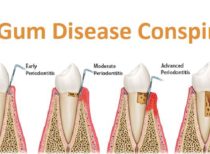 The Gum Disease Conspiracy
The Gum Disease Conspiracy
Sep 02,2018 6:00 am
-
 Vitamin D and heart health: Scientists discover that high doses reverse stiffness in arteries
Vitamin D and heart health: Scientists discover that high doses reverse stiffness in arteries
Sep 01,2018 8:44 am
-
 7 Weight Loss Diet Tips for Men Over 40
7 Weight Loss Diet Tips for Men Over 40
Sep 01,2018 7:11 am
-
 How To Burn Fat Refresher – Dr. Eric Berg
How To Burn Fat Refresher – Dr. Eric Berg
Sep 01,2018 6:33 am
-
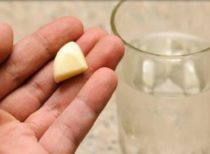 Why Is Eating Garlic on an Empty Stomach Good?
Why Is Eating Garlic on an Empty Stomach Good?
Sep 01,2018 6:14 am
-
 Want to lose weight without counting calories? Try intermittent fasting to kickstart your metabolism
Want to lose weight without counting calories? Try intermittent fasting to kickstart your metabolism
Sep 01,2018 6:00 am
-
 How Did Americans Get So Fat, In Seven Charts
How Did Americans Get So Fat, In Seven Charts
Aug 31,2018 6:12 am
-
 Relieve pain throughout the body by losing weight
Relieve pain throughout the body by losing weight
Aug 26,2018 12:24 pm
-
 Maintaining healthy weight as you age can save you $40,000
Maintaining healthy weight as you age can save you $40,000
Aug 26,2018 12:16 pm
-
 Dr. Stan Monteith and Dr. Russell Blaylock – Taking Care of Your Heart
Dr. Stan Monteith and Dr. Russell Blaylock – Taking Care of Your Heart
Aug 24,2018 3:37 pm
-
 Dr. Stan Monteith with Dr. Jorge Flechas – Lack of Iodine is a Promoter of Cancer
Dr. Stan Monteith with Dr. Jorge Flechas – Lack of Iodine is a Promoter of Cancer
Aug 24,2018 9:21 am
-
 Dr. Russell Blaylock – Why the masses have become cognitively retarded
Dr. Russell Blaylock – Why the masses have become cognitively retarded
Aug 22,2018 8:09 pm
-
 Dr. Stan Monteith interviews Bill Sardi – The Story of the Longevity Pill – Resveratrol
Dr. Stan Monteith interviews Bill Sardi – The Story of the Longevity Pill – Resveratrol
Aug 21,2018 8:08 pm
-
 Here’s What Happens if You Eat an Avocado a Day for a Month
Here’s What Happens if You Eat an Avocado a Day for a Month
Aug 21,2018 3:07 pm
-
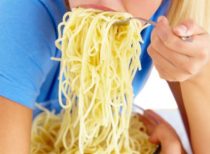 Study: Our brain’s rewards center only wants food high in fats and carbs
Study: Our brain’s rewards center only wants food high in fats and carbs
Aug 19,2018 12:46 pm
-
 Seven pharmaceuticals that cause weight gain
Seven pharmaceuticals that cause weight gain
Aug 16,2018 7:06 am
-
 Healing with Lasers and Other Remedies for Thriving In A Toxic Whirled
Healing with Lasers and Other Remedies for Thriving In A Toxic Whirled
Aug 15,2018 12:50 pm
-
 Nutritional therapist: Boost your mood in three days with the “happiness diet”
Nutritional therapist: Boost your mood in three days with the “happiness diet”
Aug 15,2018 11:36 am
-
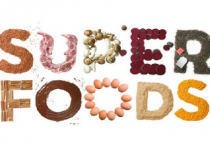 The hidden heroes: Superfoods that most people don’t know about
The hidden heroes: Superfoods that most people don’t know about
Aug 15,2018 11:00 am
-
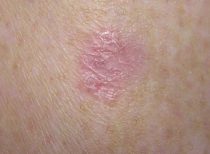 How I used 5,000 ppm Colloidal Silver to Kill Basal Cell Skin Cancer
How I used 5,000 ppm Colloidal Silver to Kill Basal Cell Skin Cancer
Aug 13,2018 9:08 am
-
 6 Easy homemade salad dressing recipes
6 Easy homemade salad dressing recipes
Aug 13,2018 8:31 am
-
 Aluminum is far from harmless – here’s how to reduce your exposure
Aluminum is far from harmless – here’s how to reduce your exposure
Aug 10,2018 5:28 pm
-
 Here are the best naturally detoxifying foods you can eat every day
Here are the best naturally detoxifying foods you can eat every day
Aug 08,2018 9:04 am
-
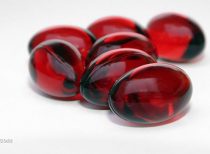 Study: Astaxanthin plays a protective role reducing UV ray skin damage
Study: Astaxanthin plays a protective role reducing UV ray skin damage
Aug 05,2018 9:23 pm
-
 Grounding or Earthing and Inflammation – Down to Earth – Video 15 min
Grounding or Earthing and Inflammation – Down to Earth – Video 15 min
Aug 04,2018 12:43 pm
-
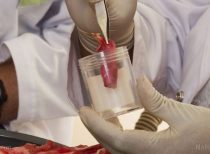 Most Americans don’t eat real food anymore; they consume cheap food-like “stuff”
Most Americans don’t eat real food anymore; they consume cheap food-like “stuff”
Aug 01,2018 9:42 am
-
 By 2025, one fifth of all humans estimated to be obese
By 2025, one fifth of all humans estimated to be obese
Jul 31,2018 6:46 am
-
 The Facts About Clean Eating
The Facts About Clean Eating
Jul 31,2018 6:30 am
-
 Why broccoli is important for optimal detoxification
Why broccoli is important for optimal detoxification
Jul 31,2018 6:27 am
-
 Rid the Loose Flabby Skin! Dr. Eric Berg
Rid the Loose Flabby Skin! Dr. Eric Berg
Jul 31,2018 6:13 am
-
 When a microwave oven is running, you should be too
When a microwave oven is running, you should be too
Jul 31,2018 6:04 am
-
 Why Research Points to the Paleo Diet as a Health Solution
Why Research Points to the Paleo Diet as a Health Solution
Jul 31,2018 6:00 am
-
 Artificial sweeteners alter gut bacteria and cause metabolic dysfunction leading to obesity and diabetes
Artificial sweeteners alter gut bacteria and cause metabolic dysfunction leading to obesity and diabetes
Jul 25,2018 6:03 am
-
 There are three main types of sugar that you need to be aware of.
There are three main types of sugar that you need to be aware of.
Jul 25,2018 6:00 am
-
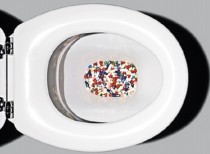 Over 600 pharmaceuticals polluting drinking water and environment
Over 600 pharmaceuticals polluting drinking water and environment
Jul 25,2018 6:00 am
-
 Break a sugar addiction within a week using three easy steps
Break a sugar addiction within a week using three easy steps
Jul 16,2018 7:20 am
-
 The Average American Woman Now Weighs As Much As 1960s Man
The Average American Woman Now Weighs As Much As 1960s Man
Jul 16,2018 6:00 am
-
 16 Cancer Causing Foods You Probably Eat Every Day
16 Cancer Causing Foods You Probably Eat Every Day
Jul 16,2018 6:00 am
-
 The Scary Truth About Movie Theater Snacks (Infographic)
The Scary Truth About Movie Theater Snacks (Infographic)
Jul 16,2018 6:00 am
-
 Overcoming Temptation and Help with Weight Loss
Overcoming Temptation and Help with Weight Loss
Jul 11,2018 12:06 pm
-
 Low-carbohydrate diets make you lean and healthy, systematic review shows
Low-carbohydrate diets make you lean and healthy, systematic review shows
Jul 11,2018 10:06 am
-
 Secrets and Strategies for Permanent Weight Loss
Secrets and Strategies for Permanent Weight Loss
Jul 11,2018 7:44 am
-
 Must Carry These: 5 Nutritional Fruits While Traveling
Must Carry These: 5 Nutritional Fruits While Traveling
Jul 11,2018 7:14 am
-
 What’s the DASH Diet and Why Doctors Call It the Best Diet
What’s the DASH Diet and Why Doctors Call It the Best Diet
Jul 05,2018 3:54 pm
-
 See What Cheaper Fish Some Restaurants Serve For Grouper, Cod and Catfish
See What Cheaper Fish Some Restaurants Serve For Grouper, Cod and Catfish
Jul 04,2018 8:37 am
-
 10 Metabolism-Boosting Foods That Support Healthy Weight Loss
10 Metabolism-Boosting Foods That Support Healthy Weight Loss
Jul 03,2018 9:14 am
-
 50 Foods That Are Super Healthy
50 Foods That Are Super Healthy
Jul 02,2018 7:03 am
-
 How to Tighten Loose Skin After Losing Weight
How to Tighten Loose Skin After Losing Weight
Jun 30,2018 7:29 am
-
 5 Foods for Healthy Better Looking Skin
5 Foods for Healthy Better Looking Skin
Jun 30,2018 6:45 am
-
 7000 Studies About Turmeric – Why You Should Use This Spice Daily
7000 Studies About Turmeric – Why You Should Use This Spice Daily
Jun 30,2018 6:45 am
-
 EZ Diet Endorsement: Physician-Founded True Food Kitchen – Healthy Real Food Restaurant
EZ Diet Endorsement: Physician-Founded True Food Kitchen – Healthy Real Food Restaurant
Jun 30,2018 6:28 am
-
 Why Most People Aren’t Happy – People With Faith Always Stopped Jesus and Got His Attention
Why Most People Aren’t Happy – People With Faith Always Stopped Jesus and Got His Attention
Jun 26,2018 11:50 am
-
 Tips for Making Unhealthy Food Options Better
Tips for Making Unhealthy Food Options Better
Jun 26,2018 9:26 am
-
 Top 10 Great Natural Sun Protecting Oils
Top 10 Great Natural Sun Protecting Oils
Jun 26,2018 8:12 am
-
 A Reason NOT to Drink Coffee on an Empty Stomach
A Reason NOT to Drink Coffee on an Empty Stomach
Jun 26,2018 6:55 am
-
 Guess How Many Calories Are in a Typical Fast Food Meal – More Than Most Would Expect
Guess How Many Calories Are in a Typical Fast Food Meal – More Than Most Would Expect
Jun 26,2018 6:24 am
-
 “How to Keep Your Brain from Aging” – Dr. Russell Blaylock Lecture
“How to Keep Your Brain from Aging” – Dr. Russell Blaylock Lecture
May 06,2017 2:03 pm
-
 Bible Prophecy 101 for Beginners – 1 hour summary documentary – the Big Picture
Bible Prophecy 101 for Beginners – 1 hour summary documentary – the Big Picture
May 06,2017 8:51 am
-
 Devastating blow to soy processors as Chinese shoppers dump GMOs
Devastating blow to soy processors as Chinese shoppers dump GMOs
May 05,2017 8:57 am
-
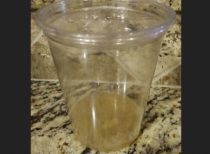 Best Fruit Fly Trap – Fruit Containers
Best Fruit Fly Trap – Fruit Containers
May 02,2017 3:02 pm
-
 200 Reasons Not To Vaccinate – Free PDF Download
200 Reasons Not To Vaccinate – Free PDF Download
May 01,2017 7:58 pm
-
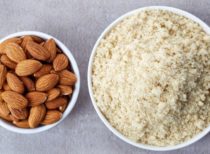 Why Almond Flour Is Better Than Most Other Flours
Why Almond Flour Is Better Than Most Other Flours
Apr 28,2017 8:41 am
-
 These 50 Foods Are High In Lectins: Avoidance or Not?
These 50 Foods Are High In Lectins: Avoidance or Not?
Apr 27,2017 8:59 am
-
 Cardiologist & Surgeon Steven R. Gundry MD Discussing Weight Loss & Lectin
Cardiologist & Surgeon Steven R. Gundry MD Discussing Weight Loss & Lectin
Apr 26,2017 8:49 am
-
 Skin care expert reveals the 20 most toxic chemical ingredients in beauty products…
Skin care expert reveals the 20 most toxic chemical ingredients in beauty products…
Apr 25,2017 5:56 pm
-
 Save on Costco 2 lb Tubs of Medjool Dates – $8.99 or $4.50 lb.
Save on Costco 2 lb Tubs of Medjool Dates – $8.99 or $4.50 lb.
Apr 25,2017 6:39 am
-
 Eating clean, unprocessed foods is now a dangerous “cult,” declares idiotic mainstream media
Eating clean, unprocessed foods is now a dangerous “cult,” declares idiotic mainstream media
Apr 23,2017 9:32 am
-
 Senators ask FDA to ban cancer-causing chemical from bath products
Senators ask FDA to ban cancer-causing chemical from bath products
Apr 21,2017 6:19 pm
-
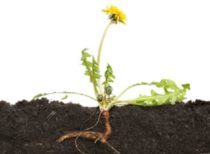 Does tea from this plant root make cancer cells disintegrate within 48 hours?
Does tea from this plant root make cancer cells disintegrate within 48 hours?
Apr 21,2017 1:15 pm
-
 National pizza chain offering organic toppings in 35-city pilot program
National pizza chain offering organic toppings in 35-city pilot program
Apr 19,2017 10:01 am
-
 Divine Medjool Date and Dark Chocolate Candy – 20 calories each
Divine Medjool Date and Dark Chocolate Candy – 20 calories each
Apr 18,2017 6:07 am
-
 The Tomato House near Dahlonega GA – Sauce, Marinade, Dressing, Jelly, & Jam Heaven
The Tomato House near Dahlonega GA – Sauce, Marinade, Dressing, Jelly, & Jam Heaven
Apr 17,2017 10:09 am
-
 Cancer Cells Die In 42 Days: Did a Famous Austrian’s Juice Cure Over 45,000 People from Cancer?
Cancer Cells Die In 42 Days: Did a Famous Austrian’s Juice Cure Over 45,000 People from Cancer?
Apr 15,2017 8:08 am
-
 How Eating Fiber Can Help You Lose Belly Fat – Ryan Raman, MS, RD
How Eating Fiber Can Help You Lose Belly Fat – Ryan Raman, MS, RD
Apr 11,2017 7:18 am
-
 Hoodia Gordonii to Suppress Appetite – Hype or Help?
Hoodia Gordonii to Suppress Appetite – Hype or Help?
Apr 10,2017 6:54 am
-
 The Real Secrets Of Successful Weight Loss – Dr. Kim Crawford
The Real Secrets Of Successful Weight Loss – Dr. Kim Crawford
Apr 08,2017 5:54 pm
-
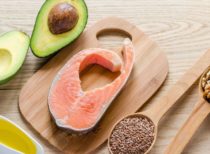 Crushing Cancer With These God-Given Foods – Dr. Don Colbert
Crushing Cancer With These God-Given Foods – Dr. Don Colbert
Apr 08,2017 8:01 am
-
 Distilled Water: THE CURE For All Our Problems? Must hear.
Distilled Water: THE CURE For All Our Problems? Must hear.
Apr 05,2017 7:31 pm
-
 12 Mental Tricks to Beat Cravings and Lose Weight
12 Mental Tricks to Beat Cravings and Lose Weight
Apr 04,2017 6:00 am
-
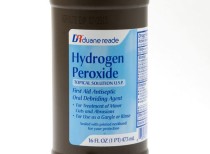 26 Amazing Benefits and Uses for Hydrogen Peroxide
26 Amazing Benefits and Uses for Hydrogen Peroxide
Apr 03,2017 6:00 am
-
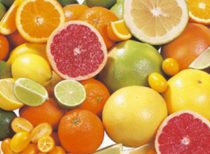 Citrus fruit found to decrease risk of stroke
Citrus fruit found to decrease risk of stroke
Mar 31,2017 7:22 am
-
 Costco Endorsed As Ezekiel Diet Friendly
Costco Endorsed As Ezekiel Diet Friendly
Mar 28,2017 6:00 am
-
 Health experts: Stop peeling your vegetables
Health experts: Stop peeling your vegetables
Mar 27,2017 6:00 am
-
 Canola oil: a chemical carcinogen that doesn’t belong anywhere near your food
Canola oil: a chemical carcinogen that doesn’t belong anywhere near your food
Mar 23,2017 10:06 am
-
 Vitamin C breakthrough discovery: Low-cost nutrient halts growth of cancer stem cells…
Vitamin C breakthrough discovery: Low-cost nutrient halts growth of cancer stem cells…
Mar 23,2017 9:49 am
-
 Five ingredients that poison your brain
Five ingredients that poison your brain
Mar 22,2017 5:00 am
-
 Natural Appetite Suppressants for Safe, Effective Weight Loss – Free 124 Page Book
Natural Appetite Suppressants for Safe, Effective Weight Loss – Free 124 Page Book
Mar 19,2017 8:42 am
-
 Shocking data reveal that bad diets are responsible for 45% of heart disease, diabetes related deaths
Shocking data reveal that bad diets are responsible for 45% of heart disease, diabetes related deaths
Mar 16,2017 9:20 pm
-
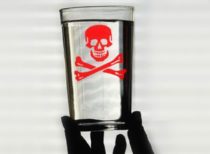 EPA under pressure to dump fluoride from water supply
EPA under pressure to dump fluoride from water supply
Mar 15,2017 6:36 am
-
 Want to live longer? Eat spicy food
Want to live longer? Eat spicy food
Mar 13,2017 1:36 pm
-
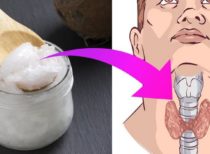 Eat 1 Tablespoon of Coconut Oil a Day and THIS Will Happen to Your Thyroid!
Eat 1 Tablespoon of Coconut Oil a Day and THIS Will Happen to Your Thyroid!
Mar 13,2017 12:57 pm
-
 25 Fulfilled Bible Prophecies you can’t deny – The Answer to 1984 is 33AD
25 Fulfilled Bible Prophecies you can’t deny – The Answer to 1984 is 33AD
Mar 12,2017 9:51 am
-
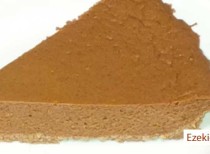 Skinny Chocolate Pumpkin Pie with Stevia and Almond Meal/Butter Crust
Skinny Chocolate Pumpkin Pie with Stevia and Almond Meal/Butter Crust
Mar 12,2017 7:34 am
-
 Using hand sanitizer causes you to absorb 10,000% more emasculation chemicals that feminize men
Using hand sanitizer causes you to absorb 10,000% more emasculation chemicals that feminize men
Mar 12,2017 5:47 am
-
 Weight Loss Programs To Heal Obesity Naturally
Weight Loss Programs To Heal Obesity Naturally
Mar 10,2017 6:50 am
-
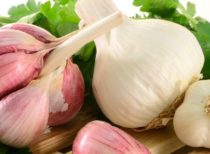 Aged garlic reverses deadly plaque in arteries and can stop heart disease
Aged garlic reverses deadly plaque in arteries and can stop heart disease
Mar 09,2017 7:24 am
-
 Low-quality food has destroyed the bodies of millennials; bowel cancer explodes
Low-quality food has destroyed the bodies of millennials; bowel cancer explodes
Mar 06,2017 8:48 am
-
 America’s mass apathy and fatigue brought on by chemically-laced, nutrient-depleted junk foods & GMOs
America’s mass apathy and fatigue brought on by chemically-laced, nutrient-depleted junk foods & GMOs
Mar 05,2017 9:13 am
-
 Will 10,000 Steps a Day Make You Fit? Dr. Mercola
Will 10,000 Steps a Day Make You Fit? Dr. Mercola
Mar 05,2017 7:40 am
-
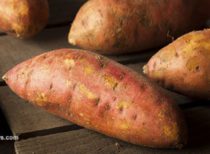 Grow 25 pounds of sweet potatoes in a bucket
Grow 25 pounds of sweet potatoes in a bucket
Mar 04,2017 9:44 pm
-
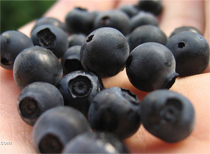 13 Types of Fish to Avoid Eating – FISH BUYING GUIDE
13 Types of Fish to Avoid Eating – FISH BUYING GUIDE
Mar 04,2017 10:29 am
-
 Scientists identify six chemicals from plant extracts that can slow down biological aging and boost longevity
Scientists identify six chemicals from plant extracts that can slow down biological aging and boost longevity
Mar 03,2017 6:39 am
-
 EZ Organic Skinny Strawberry Short the Cake Pie
EZ Organic Skinny Strawberry Short the Cake Pie
Feb 25,2017 8:15 pm
-
 Oregano essential oil kills antibiotic resistant superbugs “without any side effects” urges scientist
Oregano essential oil kills antibiotic resistant superbugs “without any side effects” urges scientist
Feb 24,2017 8:21 am
-
 11 Ways to Naturally Boost Your Metabolism for Weight Loss
11 Ways to Naturally Boost Your Metabolism for Weight Loss
Feb 23,2017 7:08 am
-
 Skinny Pumpkin Pie Recipe Secrets from Someone That’s Made Hundreds
Skinny Pumpkin Pie Recipe Secrets from Someone That’s Made Hundreds
Feb 23,2017 6:00 am
-
 Mainstream researchers finally admit vitamin C kills cancer
Mainstream researchers finally admit vitamin C kills cancer
Feb 21,2017 4:11 pm
-
 Alert: Dangerous new type of GMO being unleashed into food supply…
Alert: Dangerous new type of GMO being unleashed into food supply…
Feb 21,2017 3:57 pm
-
 Low Sodium Red Wine Sauce Recipe
Low Sodium Red Wine Sauce Recipe
Feb 18,2017 2:20 pm
-
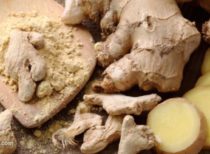 Ginger tea shown to naturally kill cancer, dissolve kidney stones, improve liver health and more
Ginger tea shown to naturally kill cancer, dissolve kidney stones, improve liver health and more
Feb 18,2017 10:24 am
-
 Top 10 food and medicine myths you probably fell for at some point
Top 10 food and medicine myths you probably fell for at some point
Feb 16,2017 9:04 pm
-
 Adrenal Body Type, Cortisol & Belly Fat! Dr. Berg
Adrenal Body Type, Cortisol & Belly Fat! Dr. Berg
Feb 16,2017 6:39 pm
-
 Chlorine in drinking water linked to heart attacks and cancer
Chlorine in drinking water linked to heart attacks and cancer
Feb 14,2017 8:44 am
-
 How to safely remove toxins from the body and avoid chronic disease naturally
How to safely remove toxins from the body and avoid chronic disease naturally
Feb 14,2017 8:19 am
-
 Saffron can help reverse age-related vision loss
Saffron can help reverse age-related vision loss
Feb 13,2017 8:34 am
-
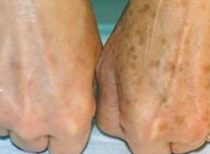 14 Home Remedies To Remove Age Spots That Work Wonders
14 Home Remedies To Remove Age Spots That Work Wonders
Feb 12,2017 9:18 am
-
 We are POISONING ourselves: The real reason why humanity is going insane… Health Ranger Report
We are POISONING ourselves: The real reason why humanity is going insane… Health Ranger Report
Feb 07,2017 9:15 am
-
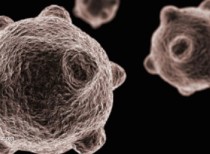 Dr. David Jockers on gut microbes – are yours making you fat?
Dr. David Jockers on gut microbes – are yours making you fat?
Feb 07,2017 7:09 am
-
 Organic chocolate covered strawberries
Organic chocolate covered strawberries
Feb 07,2017 7:07 am
-
 17 Astonishing Home Remedies for Snoring
17 Astonishing Home Remedies for Snoring
Feb 06,2017 7:34 pm
-
 60 Healthy Foods That Can Block Inflammation and Ease Pain
60 Healthy Foods That Can Block Inflammation and Ease Pain
Feb 05,2017 11:03 am
-
 EZ Diet Endorsement: Zoë’s Kitchen, “if it wasn’t food 100 years ago, it’s not food today.”
EZ Diet Endorsement: Zoë’s Kitchen, “if it wasn’t food 100 years ago, it’s not food today.”
Feb 02,2017 9:27 pm
-
 CONFIRMED: Cancer is entirely a man-made disease
CONFIRMED: Cancer is entirely a man-made disease
Feb 02,2017 3:47 pm
-
 The Truth About Multivitamins Exposed: New Study Could Save Your Life
The Truth About Multivitamins Exposed: New Study Could Save Your Life
Feb 01,2017 6:54 am
-
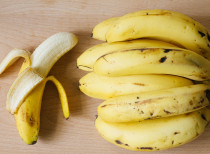 The Male Foreskin. Genital Mutilation in America En Masse?
The Male Foreskin. Genital Mutilation in America En Masse?
Jan 30,2017 1:57 pm
-
 Is too much sleep a bad thing? Evidence says there’s a healthful limit
Is too much sleep a bad thing? Evidence says there’s a healthful limit
Jan 29,2017 10:59 am
-
 Hell is not a love issue, it’s a justice issue. The Good News and Musical Chairs
Hell is not a love issue, it’s a justice issue. The Good News and Musical Chairs
Jan 28,2017 10:20 am
-
 The Straight Dope on Herpes Statistics
The Straight Dope on Herpes Statistics
Jan 25,2017 5:24 pm
-
 Expert: Relying on willpower alone is a sure way to diet failure
Expert: Relying on willpower alone is a sure way to diet failure
Jan 25,2017 6:08 am
-
 Costco Deals: Organic Squash and Zucchini – Eggs – Coconut Oil – Medjool Dates – Chicken
Costco Deals: Organic Squash and Zucchini – Eggs – Coconut Oil – Medjool Dates – Chicken
Jan 23,2017 8:41 pm
-
 EZ Diet Tips for Busy People: EZ Baked Chicken Packs for the Week
EZ Diet Tips for Busy People: EZ Baked Chicken Packs for the Week
Jan 23,2017 7:02 pm
-
 Cayenne pepper makes herbs more effective, aids weight loss, pain reduction, & ulcer relief
Cayenne pepper makes herbs more effective, aids weight loss, pain reduction, & ulcer relief
Jan 23,2017 8:30 am
-
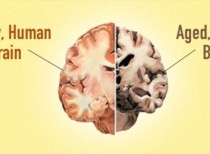 5 Things You Should be Eating to Protect Your Brain as it Ages
5 Things You Should be Eating to Protect Your Brain as it Ages
Jan 22,2017 8:37 am
-
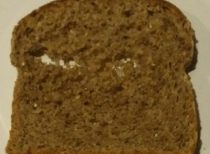 Update 1 Month Later – Holy Bread NOT Holey Bread – Message to Food for Life Management
Update 1 Month Later – Holy Bread NOT Holey Bread – Message to Food for Life Management
Jan 19,2017 10:45 am
-
 Scientists discover a way to avoid teeth fillings that proves teeth can be regrown
Scientists discover a way to avoid teeth fillings that proves teeth can be regrown
Jan 18,2017 5:59 am
-
 The 20 Most Weight Loss Friendly Foods on The Planet
The 20 Most Weight Loss Friendly Foods on The Planet
Jan 14,2017 11:00 am
-
 Forget everything else and do this one thing if you want to lose weight
Forget everything else and do this one thing if you want to lose weight
Jan 13,2017 2:17 pm
-
 Healthy Weight Loss Minute, the Basics by Dr. Ted Broer
Healthy Weight Loss Minute, the Basics by Dr. Ted Broer
Jan 13,2017 7:34 am
-
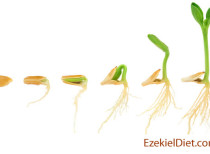 The health benefits of sprouted grains
The health benefits of sprouted grains
Jan 12,2017 6:00 am
-
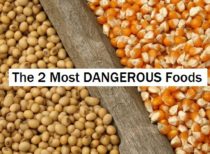 The 2 Most DANGEROUS Foods: MUST WATCH!
The 2 Most DANGEROUS Foods: MUST WATCH!
Jan 11,2017 6:10 am
-
 10 Excellent Foods That Naturally Act Like Viagra
10 Excellent Foods That Naturally Act Like Viagra
Jan 09,2017 8:47 pm
-
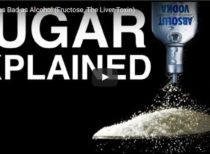 WHY Sugar is as Bad as Alcohol (Fructose, The Liver Toxin)
WHY Sugar is as Bad as Alcohol (Fructose, The Liver Toxin)
Jan 09,2017 3:42 pm
-
 ALA: Alpha-Lipoic Acid a Weight-Loss Aid
ALA: Alpha-Lipoic Acid a Weight-Loss Aid
Jan 09,2017 7:51 am
-
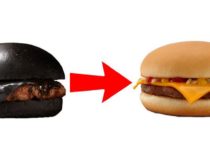 10 Things You Don’t Want to Know About Fast Food
10 Things You Don’t Want to Know About Fast Food
Jan 08,2017 10:35 am
-
 Low Vitamin D Levels Linked to Advanced Cancers
Low Vitamin D Levels Linked to Advanced Cancers
Jan 08,2017 9:34 am
-
 Sweet potato is a healthy, natural medicine
Sweet potato is a healthy, natural medicine
Jan 07,2017 8:29 am
-
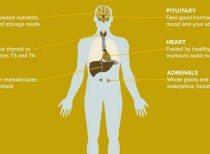 Can’t Lose Weight? The 5 Internal Factors That Rule Your Metabolism
Can’t Lose Weight? The 5 Internal Factors That Rule Your Metabolism
Jan 05,2017 7:37 am
-
 Freezing blueberries increases availability of antioxidants – Frozen Blueberries & Cream Dessert
Freezing blueberries increases availability of antioxidants – Frozen Blueberries & Cream Dessert
Jan 04,2017 11:12 am
-
 Five-day ‘fasting’ diet miraculously slows aging, can prevent death from heart disease, cancer and diabetes
Five-day ‘fasting’ diet miraculously slows aging, can prevent death from heart disease, cancer and diabetes
Jan 03,2017 9:58 am
-
 How to Fix a Slow Metabolism: MUST WATCH!
How to Fix a Slow Metabolism: MUST WATCH!
Jan 02,2017 10:10 am
-
 The Top 10 Weight Loss, Skin, & Energy Supplements – Dr. Nicholas Perricone
The Top 10 Weight Loss, Skin, & Energy Supplements – Dr. Nicholas Perricone
Dec 30,2016 8:17 am
-
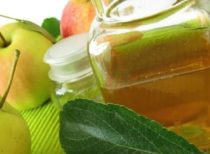 Apple cider vinegar can help regulate blood sugar, body fat and more
Apple cider vinegar can help regulate blood sugar, body fat and more
Dec 29,2016 8:42 am
-
 Skinny Cheesecake With Stevia instead of Sugar
Skinny Cheesecake With Stevia instead of Sugar
Dec 24,2016 5:40 am
-
 Health and Consciousness Repair: How Many Items On This List Are You Doing?
Health and Consciousness Repair: How Many Items On This List Are You Doing?
Dec 14,2016 6:19 am
-
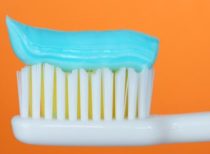 New toothpaste formula said to fix cracked teeth, restore tooth enamel
New toothpaste formula said to fix cracked teeth, restore tooth enamel
Dec 12,2016 7:13 am
-
 Periodic fasting increases fat burning and reduces the risk of disease
Periodic fasting increases fat burning and reduces the risk of disease
Dec 09,2016 8:15 am
-
 Study: Fitness trackers hardly contribute to weight loss
Study: Fitness trackers hardly contribute to weight loss
Dec 06,2016 7:41 am
-
 The GOOD-O-METER – Are You Good Enough to Get Into Heaven?
The GOOD-O-METER – Are You Good Enough to Get Into Heaven?
Dec 06,2016 7:03 am
-
 Top seven fuels that feed the cancer ‘fire’ and mutate more cells
Top seven fuels that feed the cancer ‘fire’ and mutate more cells
Dec 02,2016 8:34 am
-
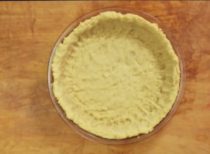 Simple Low Carb Pie Crust
Simple Low Carb Pie Crust
Nov 29,2016 8:19 am
-
 This Is Why You Should Sleep on Your Left Side
This Is Why You Should Sleep on Your Left Side
Nov 22,2016 7:00 pm
-
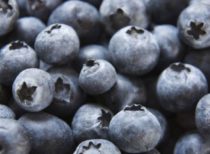 Scientific proof that blueberries support weight loss
Scientific proof that blueberries support weight loss
Nov 22,2016 7:13 am
-
 High-protein diet can reduce metabolic benefits from weight loss for women
High-protein diet can reduce metabolic benefits from weight loss for women
Nov 17,2016 6:38 am
-
 What Must I Do To Be Saved? World Video Bible School (WVBS)
What Must I Do To Be Saved? World Video Bible School (WVBS)
Nov 16,2016 4:22 pm
-
 10 Signs Your Body is Dehydrated and Immediately Needs More Water
10 Signs Your Body is Dehydrated and Immediately Needs More Water
Nov 16,2016 7:24 am
-
 Mulberry compound aids weight loss by activating brown fat
Mulberry compound aids weight loss by activating brown fat
Nov 15,2016 8:08 am
-
 Aspartame linked to vision loss, cancer and other illnesses
Aspartame linked to vision loss, cancer and other illnesses
Nov 14,2016 6:15 pm
-
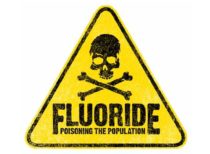 Studies confirm fluoridated water is linked to hypothyroidism, fatigue, obesity and depression
Studies confirm fluoridated water is linked to hypothyroidism, fatigue, obesity and depression
Nov 14,2016 7:09 am
-
 If Energy Drink Ads Were Honest – Honest Ads
If Energy Drink Ads Were Honest – Honest Ads
Nov 12,2016 5:47 am
-
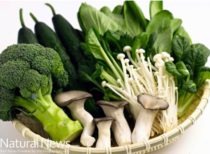 Top 10 Tips for a stronger heart – Dr. Serge Gregoire
Top 10 Tips for a stronger heart – Dr. Serge Gregoire
Nov 11,2016 6:05 am
-
 America’s Perilous Position – Dr. Charles Stanley – Must Hear – Please Share
America’s Perilous Position – Dr. Charles Stanley – Must Hear – Please Share
Nov 07,2016 8:03 am
-
 Enjoy the highly nutritious benefits of pumpkin year round
Enjoy the highly nutritious benefits of pumpkin year round
Nov 04,2016 8:14 am
-
 Book Gift Idea: True Food – Seasonal, Sustainable, Simple, Pure
Book Gift Idea: True Food – Seasonal, Sustainable, Simple, Pure
Nov 02,2016 4:36 pm
-
 What Happens to the Lungs, Brain & Mood When You Use a Himalayan SALT LAMP
What Happens to the Lungs, Brain & Mood When You Use a Himalayan SALT LAMP
Nov 01,2016 9:34 am
-
 Experts: Our drinking water contains massive doses of prescription drugs
Experts: Our drinking water contains massive doses of prescription drugs
Oct 17,2016 12:51 pm
-
 21 Reasons to Eat Real Food
21 Reasons to Eat Real Food
Oct 15,2016 8:31 am
-
 High protein, low-carb, sugarless diet helps rid young girl of depression, pain and anxiety
High protein, low-carb, sugarless diet helps rid young girl of depression, pain and anxiety
Oct 12,2016 10:12 am
-
 Best Dark Chocolate: The Ultimate Buyer’s Guide
Best Dark Chocolate: The Ultimate Buyer’s Guide
Oct 11,2016 10:41 am
-
 6 Mistakes That Slow Down Your Metabolism
6 Mistakes That Slow Down Your Metabolism
Oct 11,2016 9:54 am
-
 Laugh Out Loud Funny
Laugh Out Loud Funny
Oct 09,2016 11:27 am
-
 Could Obesity Cause Stupidity? Researchers Found a Possible Link
Could Obesity Cause Stupidity? Researchers Found a Possible Link
Oct 08,2016 11:33 am
-
 9 Little Known Ways to Shed Water Weight (Naturally and Fast)
9 Little Known Ways to Shed Water Weight (Naturally and Fast)
Oct 04,2016 8:32 am
-
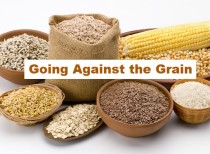 Chronic health issues? It may be time to go against the grain
Chronic health issues? It may be time to go against the grain
Oct 03,2016 7:45 am
-
 The Cost of Violating Nature’s Laws – Dr. Brent Hunter
The Cost of Violating Nature’s Laws – Dr. Brent Hunter
Oct 01,2016 1:05 am
-
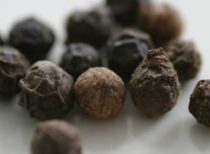 Black pepper (Piperine) increases absorption of nutrients; antioxidant properties
Black pepper (Piperine) increases absorption of nutrients; antioxidant properties
Sep 28,2016 3:17 pm
-
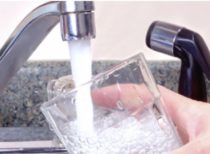 Water fluoridation linked to ADHD, obesity and depression
Water fluoridation linked to ADHD, obesity and depression
Sep 27,2016 9:31 am
-
 Gut bacteria plays a role in youth obesity
Gut bacteria plays a role in youth obesity
Sep 27,2016 8:29 am
-
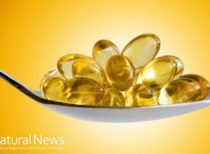 5 Healthy Supplements You Want to Include in Your Diet
5 Healthy Supplements You Want to Include in Your Diet
Sep 25,2016 5:59 pm
-
 High-fat cheese: the secret to a healthy life?
High-fat cheese: the secret to a healthy life?
Sep 22,2016 11:18 am
-
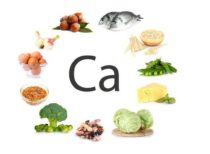 Calcium & Weight Loss – Validation from Medical Journals & Personal Experience
Calcium & Weight Loss – Validation from Medical Journals & Personal Experience
Sep 22,2016 10:00 am
-
 The Case Against Chlorinated Tap Water – Could it interfere with the “good” bacteria in your gut?
The Case Against Chlorinated Tap Water – Could it interfere with the “good” bacteria in your gut?
Sep 21,2016 8:32 am
-
 2 Minute Demonstration – How Fast Chlorine in Tap Water is Absorbed by Your Skin
2 Minute Demonstration – How Fast Chlorine in Tap Water is Absorbed by Your Skin
Sep 21,2016 8:06 am
-
 4 Hours on a Tropical Island – a Virtual Vacation by LoungeV
4 Hours on a Tropical Island – a Virtual Vacation by LoungeV
Sep 20,2016 3:47 pm
-
 Lose weight, improve brain function and optimize your health with ‘smart’ fat
Lose weight, improve brain function and optimize your health with ‘smart’ fat
Sep 17,2016 6:01 am
-
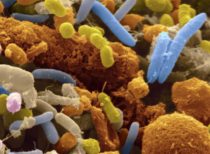 Your Lifestyle Impacts Your Gut Bacteria – and Ultimately, Your Overall Health
Your Lifestyle Impacts Your Gut Bacteria – and Ultimately, Your Overall Health
Sep 15,2016 10:40 am
-
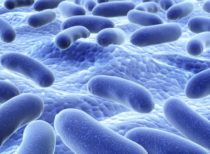 How Probiotics Can Help You Reach Your Healthiest Weight Ever
How Probiotics Can Help You Reach Your Healthiest Weight Ever
Sep 15,2016 7:31 am
-
 Foods High on the Glycemic Index but Low on Glycemic Load
Foods High on the Glycemic Index but Low on Glycemic Load
Sep 14,2016 10:32 am
-
 The Home Microbiome Project
The Home Microbiome Project
Sep 14,2016 6:00 am
-
 The Invisible Creatures That Keep You Alive
The Invisible Creatures That Keep You Alive
Sep 13,2016 10:21 am
-
 Scientists Discover a “6th Taste” Explaining Why We Love Carbs So Freakin’ Much
Scientists Discover a “6th Taste” Explaining Why We Love Carbs So Freakin’ Much
Sep 11,2016 7:50 pm
-
 Medical errors are killing at least 200,000 people per year in America
Medical errors are killing at least 200,000 people per year in America
Sep 10,2016 8:55 am
-
 Must See: The Evolution of Resistant Bacteria on an Antibiotic “Mega-Plate” Petri Dish – Harvard Medical
Must See: The Evolution of Resistant Bacteria on an Antibiotic “Mega-Plate” Petri Dish – Harvard Medical
Sep 09,2016 5:38 pm
-
 MSG: The Hidden Source of Belly Fat – Dr. Berg
MSG: The Hidden Source of Belly Fat – Dr. Berg
Sep 09,2016 3:20 pm
-
 Healthy 6 Ingredient Black Bean Brownies
Healthy 6 Ingredient Black Bean Brownies
Sep 09,2016 7:46 am
-
 Shocking pictures of processed food remind us that fake food doesn’t result in genuine health
Shocking pictures of processed food remind us that fake food doesn’t result in genuine health
Sep 08,2016 8:26 am
-
 This Is How Stress May Be Sabotaging Your Weight Loss Efforts
This Is How Stress May Be Sabotaging Your Weight Loss Efforts
Sep 07,2016 8:53 am
-
 Chronic dehydration is the primary cause of pain and disease in the human body, expert says
Chronic dehydration is the primary cause of pain and disease in the human body, expert says
Sep 06,2016 8:05 am
-
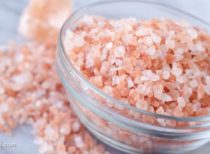 Himalayan salt: The ‘purest’ salt in the world and its numerous benefits
Himalayan salt: The ‘purest’ salt in the world and its numerous benefits
Sep 05,2016 10:30 am
-
 Sneaky Ways Restaurants Make You Fat
Sneaky Ways Restaurants Make You Fat
Sep 03,2016 10:00 am
-
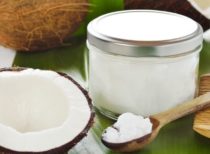 Only 1 TBSP of Coconut Oil Produces Powerful Changes To Your Health, Study Confirms
Only 1 TBSP of Coconut Oil Produces Powerful Changes To Your Health, Study Confirms
Sep 01,2016 8:39 am
-
 NY Times admits obesity linked to many cancers
NY Times admits obesity linked to many cancers
Sep 01,2016 6:00 am
-
 Skinny Sweet Potato Pie with Stevia and Almond Meal-Butter Crust
Skinny Sweet Potato Pie with Stevia and Almond Meal-Butter Crust
Aug 31,2016 8:55 am
-
 3 Reasons You May Not be Getting Enough Vitamin D this Summer
3 Reasons You May Not be Getting Enough Vitamin D this Summer
Aug 30,2016 8:15 am
-
 Control your sugar intake; it’s called ‘the white death’ for a reason
Control your sugar intake; it’s called ‘the white death’ for a reason
Aug 29,2016 1:55 pm
-
 Get the heavy metals out NOW! Health Ranger reveals 5-step method for dramatically reducing your heavy metals burden
Get the heavy metals out NOW! Health Ranger reveals 5-step method for dramatically reducing your heavy metals burden
Aug 27,2016 7:27 am
-
 CLA in grass-fed beef is a powerful anti-carcinogen that also promotes fat loss
CLA in grass-fed beef is a powerful anti-carcinogen that also promotes fat loss
Aug 27,2016 7:05 am
-
 Years ago Russia researched the biological effects of microwave ovens… then banned them
Years ago Russia researched the biological effects of microwave ovens… then banned them
Aug 26,2016 7:22 am
-
 How to Reverse a Fatty Liver – Dr. Eric Berg
How to Reverse a Fatty Liver – Dr. Eric Berg
Aug 24,2016 3:09 pm
-
 Is caring about what others think holding you back?
Is caring about what others think holding you back?
Aug 21,2016 9:41 am
-
 Why 2016 was the year to watch among 12 scholars influenced by Isaac Newton’s Biblical research
Why 2016 was the year to watch among 12 scholars influenced by Isaac Newton’s Biblical research
Aug 20,2016 7:51 am
-
 God’s Dietary Laws: Abolished in the New Testament?
God’s Dietary Laws: Abolished in the New Testament?
Aug 20,2016 7:30 am
-
 Organ donor wakes up during harvesting of her body parts after doctors jumped to conclusions
Organ donor wakes up during harvesting of her body parts after doctors jumped to conclusions
Aug 18,2016 9:22 am
-
 If you’re going to get to a healthy weight, ask yourself these 10 questions first!
If you’re going to get to a healthy weight, ask yourself these 10 questions first!
Aug 16,2016 8:17 am
-
 How to Really Conquer Your Weight Easily and for Good
How to Really Conquer Your Weight Easily and for Good
Aug 13,2016 8:08 pm
-
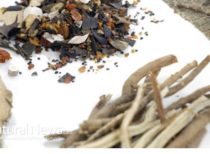 7 Best Herbs for Boosting Metabolism and Helping You Lose Weight
7 Best Herbs for Boosting Metabolism and Helping You Lose Weight
Aug 08,2016 7:17 am
-
 Seven days on an organic diet eliminates 90 percent of pesticide accumulation in humans
Seven days on an organic diet eliminates 90 percent of pesticide accumulation in humans
Aug 04,2016 7:10 am
-
 Sufficient sleep is essential to fuel weight loss efforts
Sufficient sleep is essential to fuel weight loss efforts
Jul 22,2016 8:24 am
-
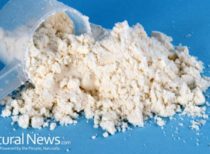 The Best Natural Supplements for Gaining Muscle
The Best Natural Supplements for Gaining Muscle
Jul 17,2016 1:34 pm
-
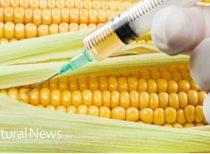 Have inflammatory diseases risen while GMO crops are the majority of food sources?
Have inflammatory diseases risen while GMO crops are the majority of food sources?
Jul 05,2016 1:24 pm
-
 Is Fruit Good or Bad For You? Practicing Healthy Eating the Smart Way
Is Fruit Good or Bad For You? Practicing Healthy Eating the Smart Way
Jun 30,2016 2:32 pm
-
 Sugar addiction and withdrawal: What you need to know
Sugar addiction and withdrawal: What you need to know
Jun 29,2016 8:07 am
-
 The 8 most SURPRISING places you’ll find GMOs
The 8 most SURPRISING places you’ll find GMOs
Jun 24,2016 10:05 am
-
 Weight Loss Lunch on the Ezekiel Diet
Weight Loss Lunch on the Ezekiel Diet
Jun 22,2016 12:33 pm
-
 Brain damaging heavy metal MERCURY found in grocery products made with high fructose corn syrup (HFCS)
Brain damaging heavy metal MERCURY found in grocery products made with high fructose corn syrup (HFCS)
Jun 22,2016 7:57 am
-
 Detox Water 101 – What it is, Health Benefits and Myths
Detox Water 101 – What it is, Health Benefits and Myths
Jun 19,2016 8:22 am
-
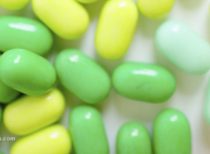 3 major studies debunk high cholesterol myths, admitting statin drugs are worthless
3 major studies debunk high cholesterol myths, admitting statin drugs are worthless
Jun 18,2016 5:22 pm
-
 Forensic Food Lab reveals most food is unfit for human and animal consumption
Forensic Food Lab reveals most food is unfit for human and animal consumption
Jun 11,2016 9:24 am
-
 NO TREATMENT NEEDED: The U.S. population could cut cancer deaths in HALF just by adopting healthier lifestyles
NO TREATMENT NEEDED: The U.S. population could cut cancer deaths in HALF just by adopting healthier lifestyles
Jun 08,2016 7:42 am
-
 Aspartame is a hidden schedule II narcotic
Aspartame is a hidden schedule II narcotic
Jun 01,2016 2:33 pm
-
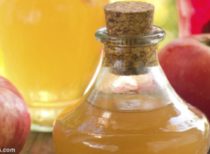 Long before pills, our ancestors used these 12 natural antibiotics to survive infections
Long before pills, our ancestors used these 12 natural antibiotics to survive infections
May 25,2016 2:52 pm
-
 Top foods to naturally increase HGH for men
Top foods to naturally increase HGH for men
May 25,2016 2:44 pm
-
 Resources: Love, Sex, Dating, and Marriage God’s Way
Resources: Love, Sex, Dating, and Marriage God’s Way
May 22,2016 3:03 pm
-
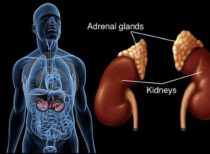 Dr. Berg explains adrenal fatigue and all of its symptoms.
Dr. Berg explains adrenal fatigue and all of its symptoms.
May 20,2016 7:18 am
-
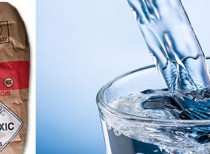 Is it the FLUORIDE? Today’s humans are so dumbed down, they can’t solve sixth grade word problems
Is it the FLUORIDE? Today’s humans are so dumbed down, they can’t solve sixth grade word problems
May 19,2016 10:40 am
-
 The REAL Reason Apple Cider Vinegar Works for Losing Weight – Dr. Berg DC
The REAL Reason Apple Cider Vinegar Works for Losing Weight – Dr. Berg DC
May 17,2016 9:28 am
-
 Growing body of evidence suggests antimicrobial soaps increase the risk of infections, alter gut bacteria and breed superbugs
Growing body of evidence suggests antimicrobial soaps increase the risk of infections, alter gut bacteria and breed superbugs
May 14,2016 7:41 am
-
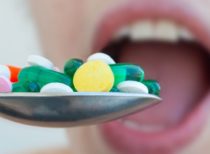 What really scares Big Pharma? People who learn how to CURE their own disease!
What really scares Big Pharma? People who learn how to CURE their own disease!
May 11,2016 1:01 pm
-
 Demons walk among us: The Five Stages of Awakening, explained by the Health Ranger
Demons walk among us: The Five Stages of Awakening, explained by the Health Ranger
May 09,2016 12:04 pm
-
 Third Leading Cause of Death in America: Going to the Hospital
Third Leading Cause of Death in America: Going to the Hospital
May 08,2016 9:09 am
-
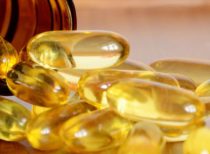 Reversing Stupid: DHA has the power to reverse the harmful effects of fructose on the brain
Reversing Stupid: DHA has the power to reverse the harmful effects of fructose on the brain
May 02,2016 8:20 am
-
 Obesity, high cholesterol, blood pressure rates soaring so fast that conventional medication will become obsolete
Obesity, high cholesterol, blood pressure rates soaring so fast that conventional medication will become obsolete
Apr 27,2016 9:15 am
-
 Total media blackout on the biggest cancer story of the decade: Millions of diagnoses were wrong…
Total media blackout on the biggest cancer story of the decade: Millions of diagnoses were wrong…
Apr 26,2016 12:50 pm
-
 Could This be the Key to Better Heart Health? Using a natural compound found in food
Could This be the Key to Better Heart Health? Using a natural compound found in food
Apr 21,2016 7:43 am
-
 Nestle’s Pure Life – Reverse Osmosis and/or Distillation Bottled Water Without Fluoride
Nestle’s Pure Life – Reverse Osmosis and/or Distillation Bottled Water Without Fluoride
Apr 16,2016 9:50 am
-
 Lancet’s Editor-In-Chief: “Half of all published scientific literature is false”
Lancet’s Editor-In-Chief: “Half of all published scientific literature is false”
Apr 15,2016 12:34 pm
-
 Costco going all out for organic:
Costco going all out for organic:
Apr 14,2016 8:31 am
-
 High Levels of Heavy Metals Found in Popular Chocolate Brands
High Levels of Heavy Metals Found in Popular Chocolate Brands
Apr 12,2016 8:30 am
-
 Create a Calming Atmosphere With LoungeV Creative Studios HD Nature Films
Create a Calming Atmosphere With LoungeV Creative Studios HD Nature Films
Apr 09,2016 2:36 pm
-
 Plantain, a common driveway weed, is one of nature’s most powerful medicines
Plantain, a common driveway weed, is one of nature’s most powerful medicines
Apr 01,2016 12:27 pm
-
 California bans commercial crab fishing due to excessive radiation in seafood
California bans commercial crab fishing due to excessive radiation in seafood
Mar 28,2016 6:51 am
-
 Ginger: The Herb For Everything? Dr. Robert W. Horovitz
Ginger: The Herb For Everything? Dr. Robert W. Horovitz
Mar 23,2016 7:16 am
-
 Take Magnesium For Your Bones – Dr. Carolyn Dean, MD, ND
Take Magnesium For Your Bones – Dr. Carolyn Dean, MD, ND
Mar 21,2016 8:41 am
-
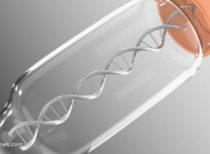 BREAKTHROUGH: The food you eat determines which genes get activated or suppressed …
BREAKTHROUGH: The food you eat determines which genes get activated or suppressed …
Mar 13,2016 7:10 pm
-
 Choose raw horseradish, oregano, or honey natural remedies instead of antibiotics
Choose raw horseradish, oregano, or honey natural remedies instead of antibiotics
Mar 13,2016 9:35 am
-
 Michael S. Tyrrell – How I discovered healing musical tones hidden deep in ancient frequencies …
Michael S. Tyrrell – How I discovered healing musical tones hidden deep in ancient frequencies …
Mar 09,2016 8:53 am
-
 When Female Carboholics Get Married
When Female Carboholics Get Married
Mar 09,2016 7:30 am
-
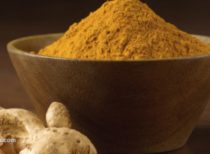 Turmeric able to ‘smart kill’ cancer cells… chemotherapy and radiation now medically obsolete
Turmeric able to ‘smart kill’ cancer cells… chemotherapy and radiation now medically obsolete
Mar 06,2016 11:27 am
-
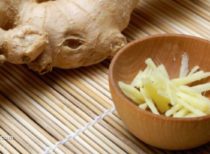 Ginger over chemo: This powerful root can eliminate 10,000x the number of cancer cells
Ginger over chemo: This powerful root can eliminate 10,000x the number of cancer cells
Mar 05,2016 8:30 am
-
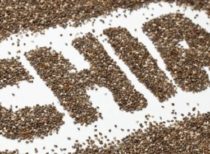 Are chia seeds the answer to weight loss?
Are chia seeds the answer to weight loss?
Feb 23,2016 7:23 am
-
 PRAZOR Launch Set to Transform Christian Media Delivery
PRAZOR Launch Set to Transform Christian Media Delivery
Feb 20,2016 6:43 am
-
 Jesus Christ healed the sick using medical marijuana, researchers claim
Jesus Christ healed the sick using medical marijuana, researchers claim
Feb 11,2016 8:55 am
-
 Miracle molecule from licorice root nullifies liver damage from alcohol and Tylenol…
Miracle molecule from licorice root nullifies liver damage from alcohol and Tylenol…
Feb 06,2016 7:44 am
-
 An overweight society in denial: junk food companies continue to profit as obesity is normalized
An overweight society in denial: junk food companies continue to profit as obesity is normalized
Feb 03,2016 7:17 am
-
 Science Shows Why Microwaved Food Is A Bad Idea For Your Health
Science Shows Why Microwaved Food Is A Bad Idea For Your Health
Jan 29,2016 7:10 am
-
 She Drank Carrot Juice From 2.5 kg Carrots Every Day: Here’s What Happened After 8 Months
She Drank Carrot Juice From 2.5 kg Carrots Every Day: Here’s What Happened After 8 Months
Jan 24,2016 8:01 pm
-
 Passion for eating healthy food declared a mental disorder by ‘expert’ psychiatrists
Passion for eating healthy food declared a mental disorder by ‘expert’ psychiatrists
Jan 19,2016 5:19 pm
-
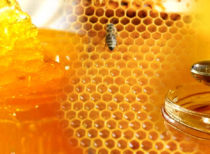 Scientists discover why honey is still the best antibiotic
Scientists discover why honey is still the best antibiotic
Jan 16,2016 6:20 am
-
 Have scientists discovered the elixir of youth? Hormone ‘extends lifespan by 40%’
Have scientists discovered the elixir of youth? Hormone ‘extends lifespan by 40%’
Jan 15,2016 12:24 pm
-
 Why Is the Church So Fat?
Why Is the Church So Fat?
Jan 12,2016 7:24 am
-
 RAPTURE? Jesus said: “It will be JUST like THIS!” Carl Gallups explains!
RAPTURE? Jesus said: “It will be JUST like THIS!” Carl Gallups explains!
Jan 10,2016 9:56 am
-
 15 Reasons You Should Be Drinking Lemon Water Every Morning
15 Reasons You Should Be Drinking Lemon Water Every Morning
Jan 10,2016 8:44 am
-
 Reverse coronary artery disease safely and naturally
Reverse coronary artery disease safely and naturally
Jan 01,2016 1:17 pm
-
 Is Your Body’s Condition a Reflection of Your Soul’s Condition?
Is Your Body’s Condition a Reflection of Your Soul’s Condition?
Dec 28,2015 7:05 am
-
 Is Food Still Good After the Sell-By Date?
Is Food Still Good After the Sell-By Date?
Dec 27,2015 8:46 am
-
 Walnuts: Brain, Heart, Anti-Cancer Benefits, and More
Walnuts: Brain, Heart, Anti-Cancer Benefits, and More
Dec 19,2015 7:30 am
-
 New multi-toxin GMOs that produce their own poison carry ‘serious health and environmental risks’ scientific review finds
New multi-toxin GMOs that produce their own poison carry ‘serious health and environmental risks’ scientific review finds
Dec 18,2015 8:47 am
-
 Three words that sum up the deepest weight loss obstacle
Three words that sum up the deepest weight loss obstacle
Dec 10,2015 7:21 am
-
 Top 10 Reasons to Stop Using Splenda Right Now!
Top 10 Reasons to Stop Using Splenda Right Now!
Dec 03,2015 8:30 am
-
 Why Am I Continuing to Gain Weight While Exercising?
Why Am I Continuing to Gain Weight While Exercising?
Nov 30,2015 7:33 am
-
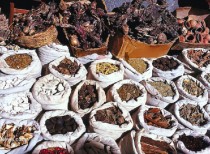 The biggest lie about natural remedies exposed
The biggest lie about natural remedies exposed
Nov 27,2015 9:43 am
-
 Raw, Vegan Pecan Pie Using Medjool Dates instead of Corn Syrup
Raw, Vegan Pecan Pie Using Medjool Dates instead of Corn Syrup
Nov 26,2015 4:54 pm
-
 Wal-Mart Strikes A Deal With Wild Oats To Sell Cheaper Organic Foods
Wal-Mart Strikes A Deal With Wild Oats To Sell Cheaper Organic Foods
Nov 24,2015 2:09 pm
-
 So simple it’s ridiculous: #1 tip for losing weight and keeping it off forever
So simple it’s ridiculous: #1 tip for losing weight and keeping it off forever
Nov 24,2015 8:23 am
-
 Can This New Supplement Block Damaging Effects of Carbs?
Can This New Supplement Block Damaging Effects of Carbs?
Nov 19,2015 7:04 am
-
 Fit Body, Fit Brain: The Key to Keeping Your Mind Young
Fit Body, Fit Brain: The Key to Keeping Your Mind Young
Nov 19,2015 5:58 am
-
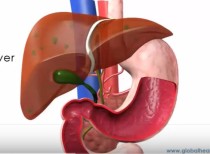 14 Foods That Cleanse the Liver – by Dr. Edward Group
14 Foods That Cleanse the Liver – by Dr. Edward Group
Nov 18,2015 7:24 am
-
 Is slow metabolism to blame for chronic weight loss failure?
Is slow metabolism to blame for chronic weight loss failure?
Nov 11,2015 7:28 am
-
 8 Healthy foods to help you lose weight
8 Healthy foods to help you lose weight
Nov 06,2015 5:01 pm
-
 What scientific evidence exists that testifies to the presence and power of The God?
What scientific evidence exists that testifies to the presence and power of The God?
Nov 01,2015 8:41 am
-
 Study Finds Weird ‘Noise’ Factor Makes Most People Gain Weight. Could you be affected?
Study Finds Weird ‘Noise’ Factor Makes Most People Gain Weight. Could you be affected?
Oct 30,2015 10:43 am
-
 GcMAF: Another Suppressed Cancer Treatment? And here is how it is even more powerful…
GcMAF: Another Suppressed Cancer Treatment? And here is how it is even more powerful…
Oct 28,2015 5:32 pm
-
 Health benefits of pumpkins: Cancer-fighting, wound healing and skin-protecting
Health benefits of pumpkins: Cancer-fighting, wound healing and skin-protecting
Oct 28,2015 8:27 am
-
 Wendy’s, McDonald’s, Gerber Says NO to Non-Browning GMO Arctic Apples
Wendy’s, McDonald’s, Gerber Says NO to Non-Browning GMO Arctic Apples
Oct 27,2015 9:30 am
-
 Soda industry dying as Americans seek healthy beverages that don’t cause diabetes, obesity
Soda industry dying as Americans seek healthy beverages that don’t cause diabetes, obesity
Oct 22,2015 7:47 am
-
 Alternative Heart Treatment Moves Into the Mainstream
Alternative Heart Treatment Moves Into the Mainstream
Oct 20,2015 8:17 am
-
 How to Store and Prepare Frozen Ezekiel 4:9 Bread
How to Store and Prepare Frozen Ezekiel 4:9 Bread
Oct 17,2015 9:53 am
-
 Top 10 reasons to avoid toxic high-fructose corn syrup
Top 10 reasons to avoid toxic high-fructose corn syrup
Oct 16,2015 7:38 am
-
 10 Things Americans Consume That Are Banned in Other Countries
10 Things Americans Consume That Are Banned in Other Countries
Oct 14,2015 9:59 pm
-
 5 Things You Didn’t Know About Brown Fat
5 Things You Didn’t Know About Brown Fat
Oct 12,2015 8:13 pm
-
 Over 40 Rodent Feeding Studies Show GM Food is Disastrous to Health …… Why aren’t these foods labeled?
Over 40 Rodent Feeding Studies Show GM Food is Disastrous to Health …… Why aren’t these foods labeled?
Oct 12,2015 8:35 am
-
 5 Ways to Guarantee Success With Your Diet
5 Ways to Guarantee Success With Your Diet
Oct 07,2015 7:42 am
-
 WE ARE WINNING the clean food wars: Food and beverage companies ditch HFCS and toxic ingredients
WE ARE WINNING the clean food wars: Food and beverage companies ditch HFCS and toxic ingredients
Oct 06,2015 6:17 am
-
 Diabetes, obesity and developmental problems all caused by chemical corporations’ toxic products
Diabetes, obesity and developmental problems all caused by chemical corporations’ toxic products
Oct 04,2015 9:48 am
-
 Five good mood foods that support mental health
Five good mood foods that support mental health
Oct 02,2015 6:50 am
-
 Top 10 probiotic-rich foods to improve your life
Top 10 probiotic-rich foods to improve your life
Oct 01,2015 7:49 am
-
 Why Home-Cooked Food Never Tastes Like Restaurant Food
Why Home-Cooked Food Never Tastes Like Restaurant Food
Sep 25,2015 8:43 am
-
 Colloidal Silver: No Home Should Be Without It!
Colloidal Silver: No Home Should Be Without It!
Sep 20,2015 3:48 pm
-
 Natural Anti-Aging Solutions Webinar with Dr. Group
Natural Anti-Aging Solutions Webinar with Dr. Group
Sep 17,2015 3:30 pm
-
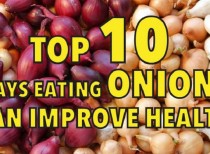 Top 10 ways eating onions can improve health
Top 10 ways eating onions can improve health
Sep 14,2015 8:13 am
-
 10% Vinegar, Orange Oil, Dish Soap Weed Killer – Alternative to Glyphosate (Roundup)
10% Vinegar, Orange Oil, Dish Soap Weed Killer – Alternative to Glyphosate (Roundup)
Sep 13,2015 12:54 pm
-
 Raw Pecan Brownies
Raw Pecan Brownies
Sep 12,2015 11:47 am
-
 GMOs And Their Irreversible Effects On Our Future
GMOs And Their Irreversible Effects On Our Future
Sep 06,2015 1:21 pm
-
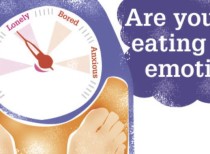 Emotional eating – The secret to natural weight loss
Emotional eating – The secret to natural weight loss
Sep 06,2015 8:27 am
-
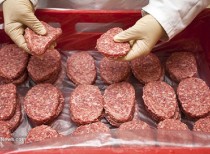 Consumer Reports finds hamburger from grass-fed and organic cattle poses fewer health risks
Consumer Reports finds hamburger from grass-fed and organic cattle poses fewer health risks
Aug 27,2015 6:05 pm
-
 The 1 out of 100 Cleaner Condiments: Braswell’s Merlot Wine Sauce from WalMart, 6 bottle case
The 1 out of 100 Cleaner Condiments: Braswell’s Merlot Wine Sauce from WalMart, 6 bottle case
Aug 06,2015 2:31 pm
-
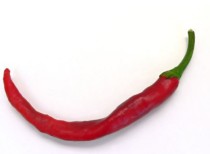 Beyond The Heat: 7 Amazing Health Benefits Of Chilli peppers
Beyond The Heat: 7 Amazing Health Benefits Of Chilli peppers
Jul 24,2015 6:24 am
-
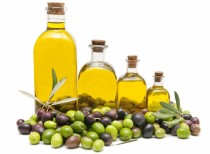 New research: Olive oil compound destroys cancer cells in 30 minutes
New research: Olive oil compound destroys cancer cells in 30 minutes
Jul 21,2015 9:49 am
-
 Colorado City Stops Water Fluoridation Following Concerning Study – Joining the rest of the world in refusing fluoride
Colorado City Stops Water Fluoridation Following Concerning Study – Joining the rest of the world in refusing fluoride
Jul 21,2015 7:41 am
-
 ‘Super Anti-Cancer Spice’ Turmeric Could Fight Type 2 Diabetes, Fuel Weight Loss
‘Super Anti-Cancer Spice’ Turmeric Could Fight Type 2 Diabetes, Fuel Weight Loss
Jul 21,2015 7:24 am
-
 SMART METERS: A SURVEILLANCE AND CONTROL CON JOB REVEALED – NewsWithViews.com
SMART METERS: A SURVEILLANCE AND CONTROL CON JOB REVEALED – NewsWithViews.com
Jul 18,2015 11:23 am
-
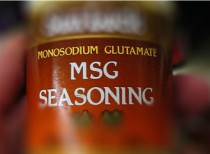 The Real Reason to Avoid MSG: Industry Secret Ingredient for Food Addiction
The Real Reason to Avoid MSG: Industry Secret Ingredient for Food Addiction
Jul 12,2015 9:42 pm
-
 New Research Finds Fruit Can Convert ‘Bad’ Fat into ‘Good’ Fat – Here is the secret fat-converting compound
New Research Finds Fruit Can Convert ‘Bad’ Fat into ‘Good’ Fat – Here is the secret fat-converting compound
Jul 11,2015 2:09 pm
-
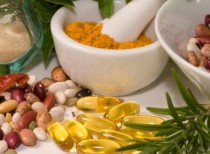 Alternative medicine users more knowledgeable, earn more than others, study finds
Alternative medicine users more knowledgeable, earn more than others, study finds
Jul 11,2015 8:34 am
-
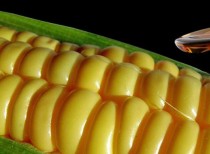 Newly Discovered Danger of High Fructose Corn Syrup is Alarming – How your heart is put at risk
Newly Discovered Danger of High Fructose Corn Syrup is Alarming – How your heart is put at risk
Jul 04,2015 7:19 am
-
 How to Safely Clean Fruits and Vegetables
How to Safely Clean Fruits and Vegetables
Jul 02,2015 7:17 pm
-
 Fast food restaurants move towards organic food as Americans become health-conscious
Fast food restaurants move towards organic food as Americans become health-conscious
Jul 01,2015 7:11 am
-
 Amy’s Kitchen to Launch First Non-GMO, Organic Drive-Thru
Amy’s Kitchen to Launch First Non-GMO, Organic Drive-Thru
Jun 30,2015 12:00 pm
-
 June 30, 2015 Star of Bethlehem? Jim Dodge and Dr. Dale Sides – signs in the sky in 2015
June 30, 2015 Star of Bethlehem? Jim Dodge and Dr. Dale Sides – signs in the sky in 2015
Jun 27,2015 9:46 am
-
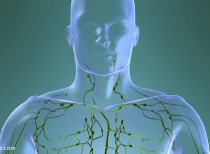 The lymphatic system – How it works and why cleansing it matters
The lymphatic system – How it works and why cleansing it matters
Jun 25,2015 8:55 am
-
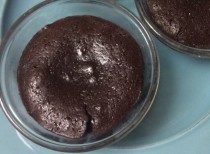 Gluten Free, Paleo Chocolate Lava Cake, my Favorite Anti-Aging Treat
Gluten Free, Paleo Chocolate Lava Cake, my Favorite Anti-Aging Treat
Jun 18,2015 9:20 am
-
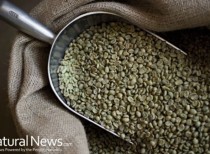 Are Green Coffee Beans the Perfect Weight Loss Superfood?
Are Green Coffee Beans the Perfect Weight Loss Superfood?
Jun 17,2015 6:42 pm
-
 EZ Meal Ideas on The Ezekiel Diet
EZ Meal Ideas on The Ezekiel Diet
Jun 17,2015 8:13 am
-
 Organic Takeover: Toxic Food Makers Lose $4 Billion in Sales in One Year
Organic Takeover: Toxic Food Makers Lose $4 Billion in Sales in One Year
Jun 15,2015 8:10 am
-
 Study: Tattoos Can Cause Serious, Long-Term, Adverse Reactions
Study: Tattoos Can Cause Serious, Long-Term, Adverse Reactions
Jun 12,2015 6:31 am
-
 Learn how to plant a high-yield secret survival garden
Learn how to plant a high-yield secret survival garden
Jun 03,2015 9:45 am
-
 Fluoride Content in Beer Website – More Alcohol Equals Less Fluoride – Pick Your Poison
Fluoride Content in Beer Website – More Alcohol Equals Less Fluoride – Pick Your Poison
May 30,2015 10:30 am
-
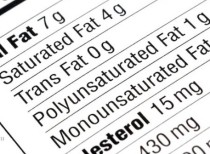 Analysis reveals more than one-quarter of all supermarket food contains toxic trans fats
Analysis reveals more than one-quarter of all supermarket food contains toxic trans fats
May 29,2015 8:12 am
-
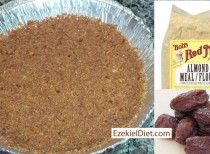 How To Make Almond Meal and Medjool Date Pie Crust – 315 Calories
How To Make Almond Meal and Medjool Date Pie Crust – 315 Calories
May 23,2015 9:11 am
-
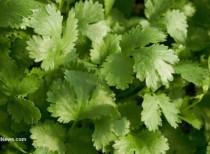 ‘Poor man’s’ heavy metal detox – boost health without breaking the bank
‘Poor man’s’ heavy metal detox – boost health without breaking the bank
May 23,2015 8:01 am
-
 Can ancient ‘sun gazing’ therapy help reactivate a calcified pineal gland?
Can ancient ‘sun gazing’ therapy help reactivate a calcified pineal gland?
May 22,2015 8:17 am
-
 Researchers find that ‘quality’ diets high in fruits and vegetables, low in sodium are good for kidneys
Researchers find that ‘quality’ diets high in fruits and vegetables, low in sodium are good for kidneys
May 20,2015 7:36 am
-
 Huge Victory: USDA Introduces Official Non-GMO Label
Huge Victory: USDA Introduces Official Non-GMO Label
May 17,2015 10:38 am
-
 Skinny Pumpkin Cheesecake Pie Chronicles
Skinny Pumpkin Cheesecake Pie Chronicles
May 16,2015 9:26 am
-
 Power Walking: One of the Best Complete Exercises Around – Especially if you do it in certain environments
Power Walking: One of the Best Complete Exercises Around – Especially if you do it in certain environments
May 14,2015 7:31 am
-
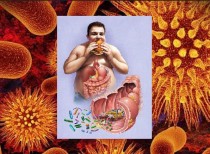 Everything you think you know about diets is WRONG – The Diet Myth
Everything you think you know about diets is WRONG – The Diet Myth
May 12,2015 7:47 am
-
 The best and worst forms of magnesium to take as a supplement
The best and worst forms of magnesium to take as a supplement
May 07,2015 7:37 am
-
 Newton’s Riddle! What was Sir Isaac Newton looking for in the Book of Daniel for 73 Years?
Newton’s Riddle! What was Sir Isaac Newton looking for in the Book of Daniel for 73 Years?
May 05,2015 6:57 am
-
 Skinny Chocolate Cheesecake with Stevia and Almond Meal/Medjool Date Crust
Skinny Chocolate Cheesecake with Stevia and Almond Meal/Medjool Date Crust
May 03,2015 10:09 am
-
 US Govt Lowers Fluoride Levels In Drinking Water For First Time in 50 Years
US Govt Lowers Fluoride Levels In Drinking Water For First Time in 50 Years
Apr 30,2015 6:14 am
-
 Why You May Be Better Off Ignoring Conventional Cholesterol and Low-Fat Diet Guidelines
Why You May Be Better Off Ignoring Conventional Cholesterol and Low-Fat Diet Guidelines
Apr 27,2015 11:26 am
-
 BAM! Chipotle goes 100% non-GMO; flatly rejecting the biotech industry and its toxic food ingredients
BAM! Chipotle goes 100% non-GMO; flatly rejecting the biotech industry and its toxic food ingredients
Apr 27,2015 7:24 am
-
 Skinny Chocolate Sweet Potato Pie with Stevia and Almond Meal/Butter Crust
Skinny Chocolate Sweet Potato Pie with Stevia and Almond Meal/Butter Crust
Apr 23,2015 5:49 pm
-
 EZ Pizza ideas using Ezekiel Bread
EZ Pizza ideas using Ezekiel Bread
Apr 23,2015 2:38 pm
-
 Organic industry is exploding in Wisconsin as demand for clean, healthy food outpaces supply
Organic industry is exploding in Wisconsin as demand for clean, healthy food outpaces supply
Apr 23,2015 8:11 am
-
 The Perricone Anti-Inflammatory 3 Day Face Lift Diet
The Perricone Anti-Inflammatory 3 Day Face Lift Diet
Apr 20,2015 11:55 am
-
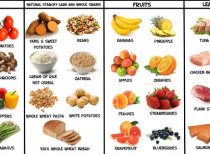 Foods and Nutrients That Help Burn Belly Fat
Foods and Nutrients That Help Burn Belly Fat
Apr 20,2015 8:05 am
-
 10 Ways To Prevent Stress-Related Heart Attack
10 Ways To Prevent Stress-Related Heart Attack
Apr 18,2015 9:55 am
-
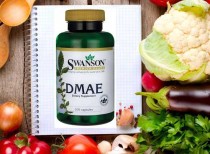 DMAE: Extending the Lifespan and Mental Capacity of Mice and Men
DMAE: Extending the Lifespan and Mental Capacity of Mice and Men
Apr 16,2015 8:25 am
-
 Bizarro Psychiatric Officials Label ‘Healthy Eating’ As Newest ‘Eating Disorder’
Bizarro Psychiatric Officials Label ‘Healthy Eating’ As Newest ‘Eating Disorder’
Apr 13,2015 7:31 am
-
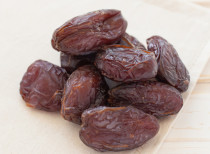 20 Cool Facts You Didn’t Know About Dates
20 Cool Facts You Didn’t Know About Dates
Apr 12,2015 8:00 am
-
 Beware of these 55 “Hidden” Sugar Names! 5 Best Natural Substitutes For Sugar
Beware of these 55 “Hidden” Sugar Names! 5 Best Natural Substitutes For Sugar
Apr 12,2015 7:38 am
-
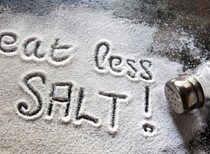 #2 Food Ingredient to Avoid – Sodium Chloride (Processed Salt)
#2 Food Ingredient to Avoid – Sodium Chloride (Processed Salt)
Apr 11,2015 3:09 pm
-
 5 Simple Ways to Ignite Your Metabolism (and Lose Weight) After a Cruise
5 Simple Ways to Ignite Your Metabolism (and Lose Weight) After a Cruise
Apr 09,2015 8:53 am
-
 Study Reveals Amount of Processed Food Purchased by 157,142 Households – Not Good
Study Reveals Amount of Processed Food Purchased by 157,142 Households – Not Good
Apr 09,2015 7:17 am
-
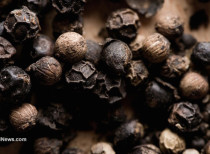 Herbs to treat inflammation: The 10 most powerful natural medicines that really work
Herbs to treat inflammation: The 10 most powerful natural medicines that really work
Apr 08,2015 7:06 am
-
 Study: Junk Food more Deadly than War, Famine, Genocide – Researchers reveal disturbing numbers
Study: Junk Food more Deadly than War, Famine, Genocide – Researchers reveal disturbing numbers
Apr 07,2015 6:26 am
-
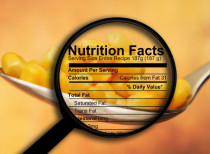 How GMO Foods Feed Junk Food Profits – Not the World – Leading to obesity, diabetes, and more
How GMO Foods Feed Junk Food Profits – Not the World – Leading to obesity, diabetes, and more
Apr 01,2015 2:41 pm
-
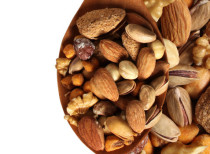 Are Your Favorite Nuts Helping or Harming You? It’s nature’s way
Are Your Favorite Nuts Helping or Harming You? It’s nature’s way
Mar 30,2015 7:57 am
-
 Grilled Organic Sweet Potatoes and French Green Beans for the Week
Grilled Organic Sweet Potatoes and French Green Beans for the Week
Mar 27,2015 10:52 pm
-
 When Female Carboholics Have Children
When Female Carboholics Have Children
Mar 27,2015 9:58 pm
-
 Life Changing Raw Chocolate Caramel Pie – Updated – Serving Tip
Life Changing Raw Chocolate Caramel Pie – Updated – Serving Tip
Mar 26,2015 6:54 pm
-
 Healthier Version of the Infamous BoneFish Grill Jamaican Coconut Pie with Rum Sauce
Healthier Version of the Infamous BoneFish Grill Jamaican Coconut Pie with Rum Sauce
Mar 24,2015 7:33 pm
-
 Study: Drinking Diet Soda Leads to Weight GAIN – But the damage doesn’t end there
Study: Drinking Diet Soda Leads to Weight GAIN – But the damage doesn’t end there
Mar 23,2015 5:43 am
-
 A Better Cookie: Gluten-Free, Vegan Chocolate Pecan
A Better Cookie: Gluten-Free, Vegan Chocolate Pecan
Mar 21,2015 10:13 am
-
 If You Didn’t Buy It and Cook It Yourself, It’s Mystery Food That Will Make You Fat, Sick, & Dead Prematurely
If You Didn’t Buy It and Cook It Yourself, It’s Mystery Food That Will Make You Fat, Sick, & Dead Prematurely
Mar 21,2015 9:01 am
-
 The Best Ways to Avoid Fluoride and Detox it from Your Body
The Best Ways to Avoid Fluoride and Detox it from Your Body
Mar 18,2015 7:09 am
-
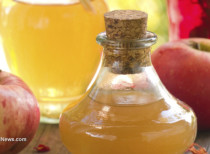 Apple Cider Vinegar improves blood sugar regulation and speeds up weight loss
Apple Cider Vinegar improves blood sugar regulation and speeds up weight loss
Mar 18,2015 6:59 am
-
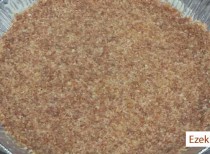 How To Make Almond Meal-Butter Pie Crust on the Ezekiel Diet
How To Make Almond Meal-Butter Pie Crust on the Ezekiel Diet
Mar 16,2015 8:42 am
-
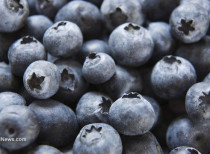 A tasty way to help prevent cardiovascular disease, cancer, and dementia
A tasty way to help prevent cardiovascular disease, cancer, and dementia
Mar 16,2015 5:51 am
-
 The Research: Eat THIS to Lose Weight
The Research: Eat THIS to Lose Weight
Mar 14,2015 8:39 am
-
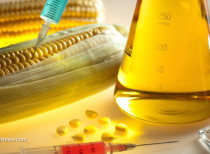 High Fructose Corn Syrup Now Labeled as Fructose or HFCS-90
High Fructose Corn Syrup Now Labeled as Fructose or HFCS-90
Mar 10,2015 6:30 am
-
 Skinny Pumpkin Cheesecake with Stevia and Almond Meal-Butter Crust
Skinny Pumpkin Cheesecake with Stevia and Almond Meal-Butter Crust
Mar 09,2015 1:18 pm
-
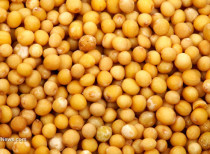 Mustard, Cayenne Pepper and Green Tea Boost Your Metabolism for Weight Loss
Mustard, Cayenne Pepper and Green Tea Boost Your Metabolism for Weight Loss
Mar 09,2015 8:46 am
-
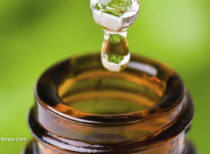 Stevia is a natural anti-inflammatory and anti-cancer agent
Stevia is a natural anti-inflammatory and anti-cancer agent
Mar 08,2015 1:56 pm
-
 12 EZ Meals on the Grill – Save time and money – 15 Minute Meals
12 EZ Meals on the Grill – Save time and money – 15 Minute Meals
Mar 07,2015 6:25 am
-
 Brain care with Dr. Russell Blaylock
Brain care with Dr. Russell Blaylock
Mar 05,2015 7:12 pm
-
 300 Calorie Weight Loss Meal – Chicken Veggie Stew
300 Calorie Weight Loss Meal – Chicken Veggie Stew
Mar 05,2015 2:05 pm
-
 5 Nutritional Reasons People Keep Eating Meat
5 Nutritional Reasons People Keep Eating Meat
Mar 05,2015 12:55 pm
-
 No Microwave Cooking, Find Out Why
No Microwave Cooking, Find Out Why
Feb 25,2015 10:19 am
-
 Officials Declare ‘Eating Healthy’ a Mental Disorder
Officials Declare ‘Eating Healthy’ a Mental Disorder
Feb 22,2015 9:39 am
-
 Pasture-raised eggs are one of the richest sources of bioactive nutrients
Pasture-raised eggs are one of the richest sources of bioactive nutrients
Feb 22,2015 8:52 am
-
 The Great Dumbing Down of America with Chemical Toxins
The Great Dumbing Down of America with Chemical Toxins
Feb 21,2015 1:31 pm
-
 Something Odd About Old Family Photos
Something Odd About Old Family Photos
Feb 21,2015 12:36 pm
-
 The Only Water You Drink Is The Water You Make
The Only Water You Drink Is The Water You Make
Feb 20,2015 3:47 pm
-
 The Multimillion Dollar Medical Early Demise Tax Explained
The Multimillion Dollar Medical Early Demise Tax Explained
Feb 20,2015 9:36 am
-
 EZ Breakfast Ideas on the Ezekiel Diet
EZ Breakfast Ideas on the Ezekiel Diet
Feb 19,2015 10:48 am
-
 Most Astonishing Health Disaster and the Ezekiel Diet Purpose Statement
Most Astonishing Health Disaster and the Ezekiel Diet Purpose Statement
Feb 17,2015 3:40 am
-
 128 EZ Meals on the Ezekiel Diet Files New Website
128 EZ Meals on the Ezekiel Diet Files New Website
Feb 15,2015 2:46 pm
-
 Pan Grilled Chicken Breast for the Week
Pan Grilled Chicken Breast for the Week
Feb 15,2015 1:49 pm
-
 Häagen-Dazs Ice Cream, One of the Cleaner Brands
Häagen-Dazs Ice Cream, One of the Cleaner Brands
Feb 14,2015 9:13 pm
-
 Food Babe Gets General Mills to Pull Preservatives
Food Babe Gets General Mills to Pull Preservatives
Feb 14,2015 12:37 pm
-
 Being Health Conscious Makes You The New “Conspiracy Theorist”!
Being Health Conscious Makes You The New “Conspiracy Theorist”!
Feb 14,2015 4:18 am

